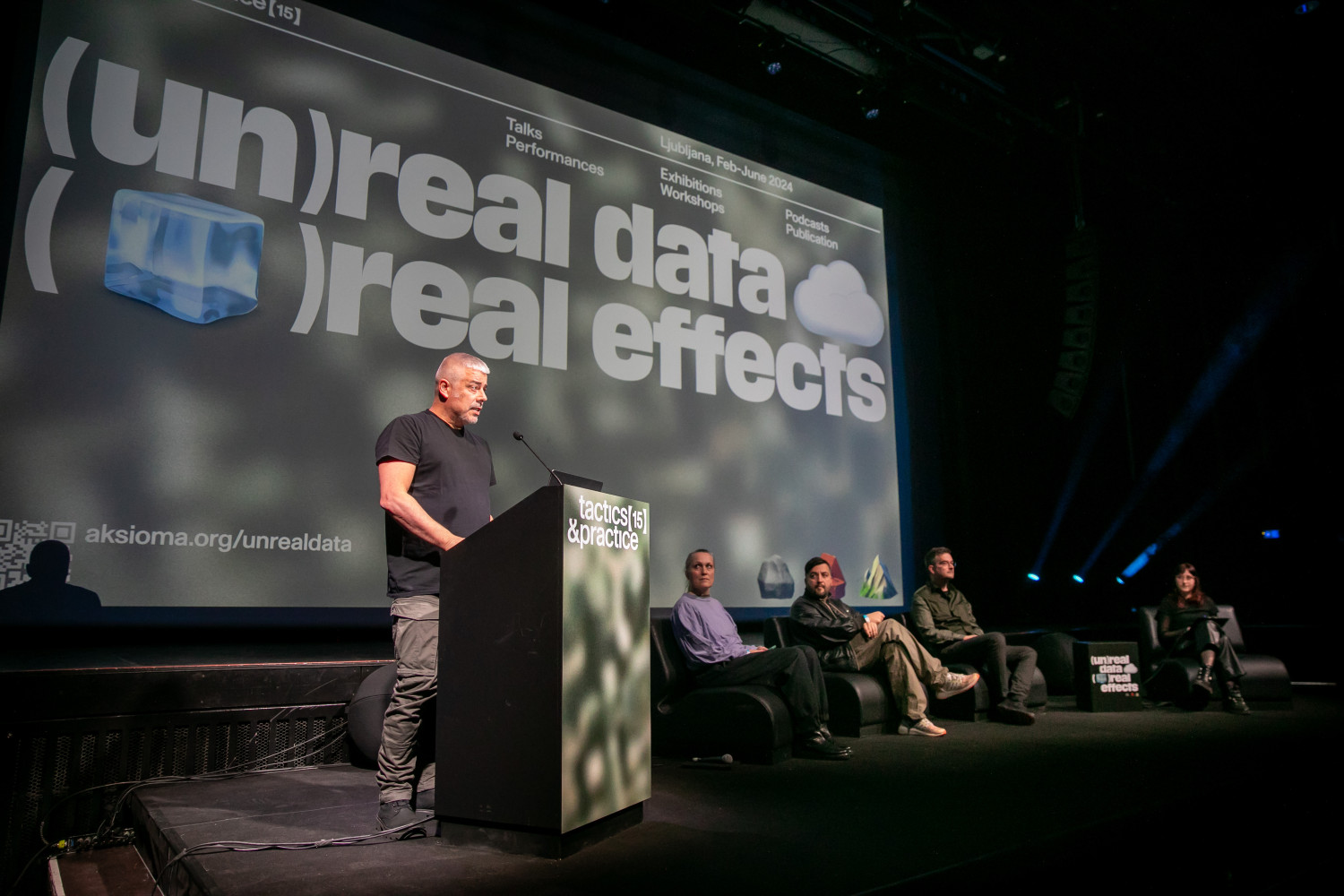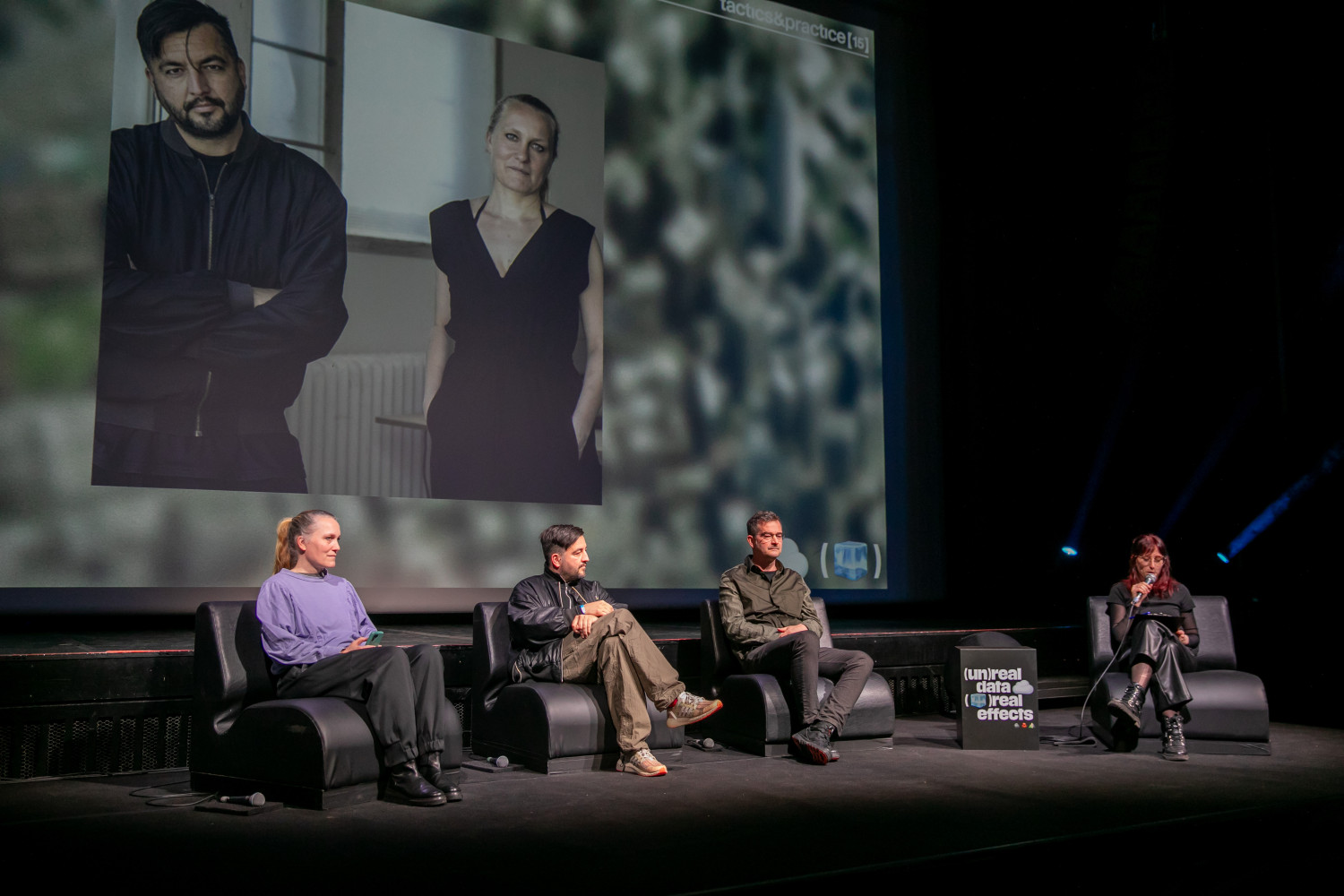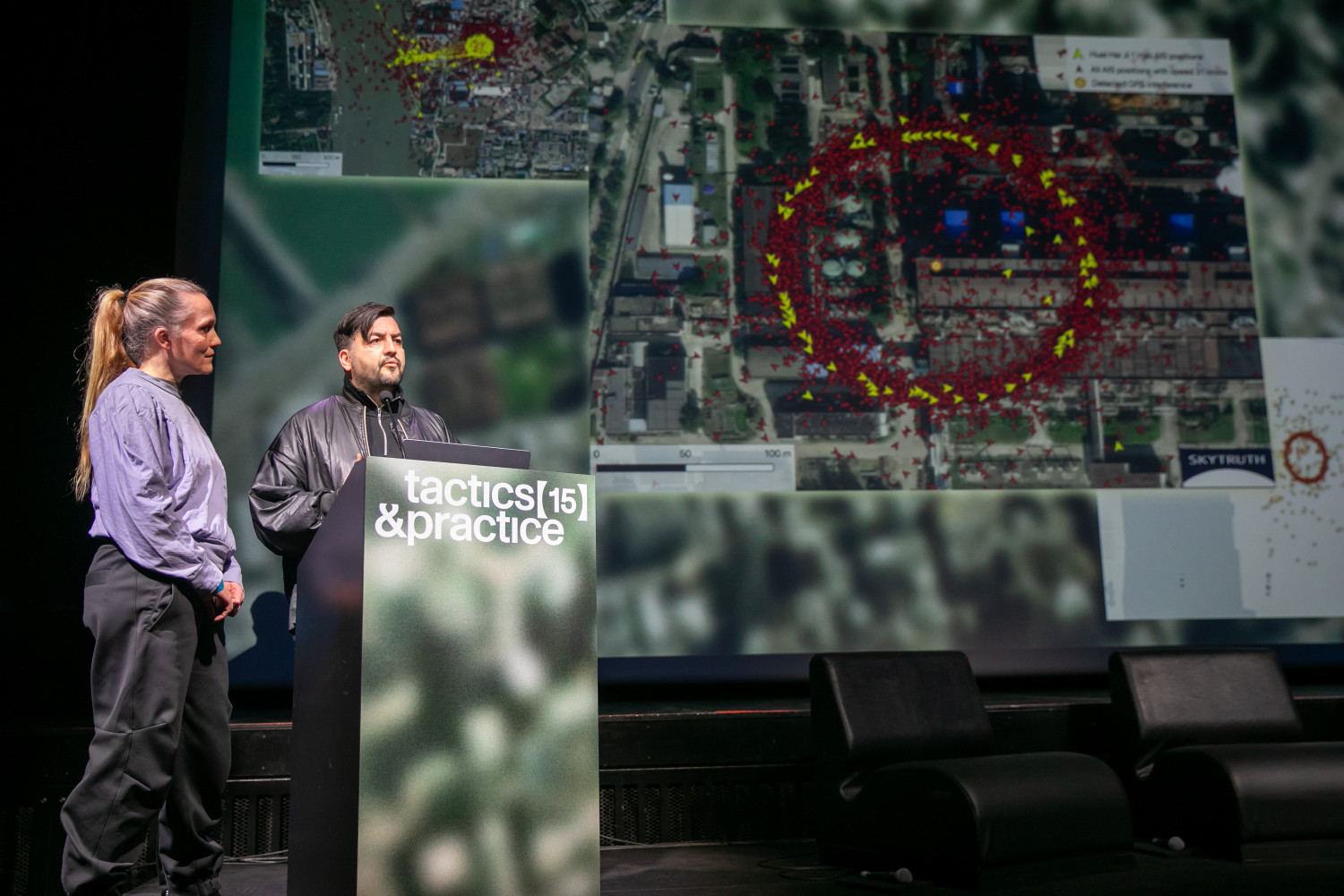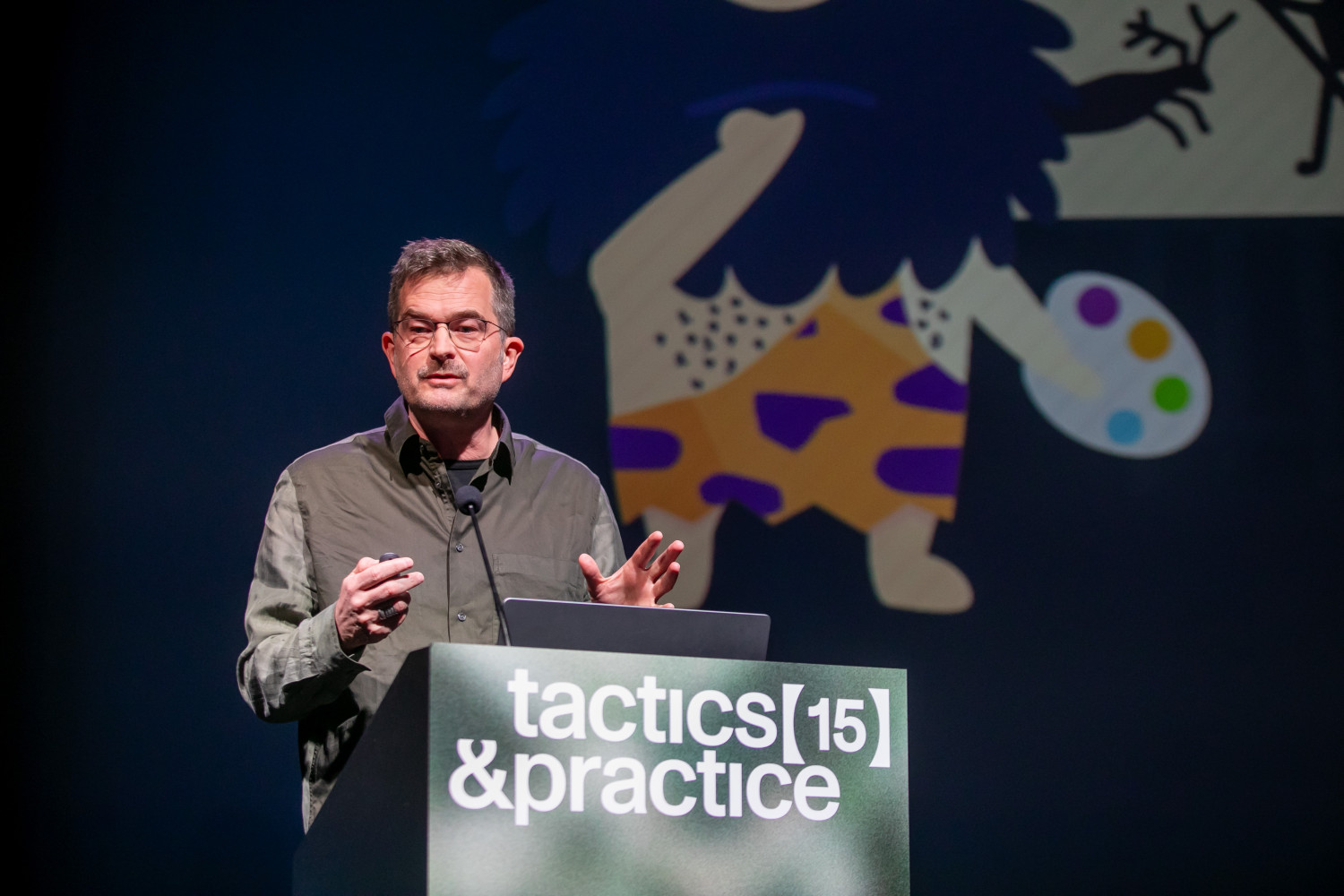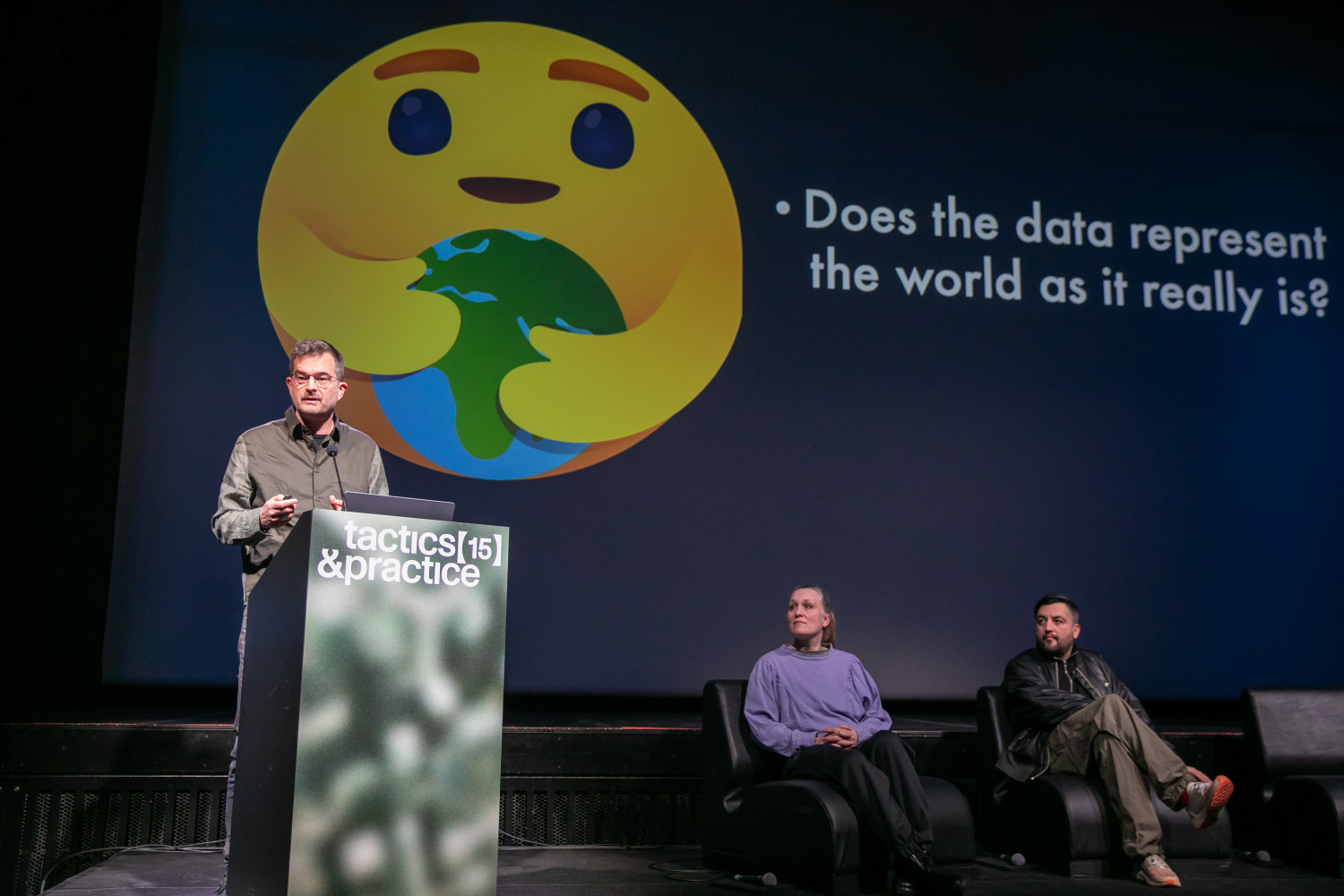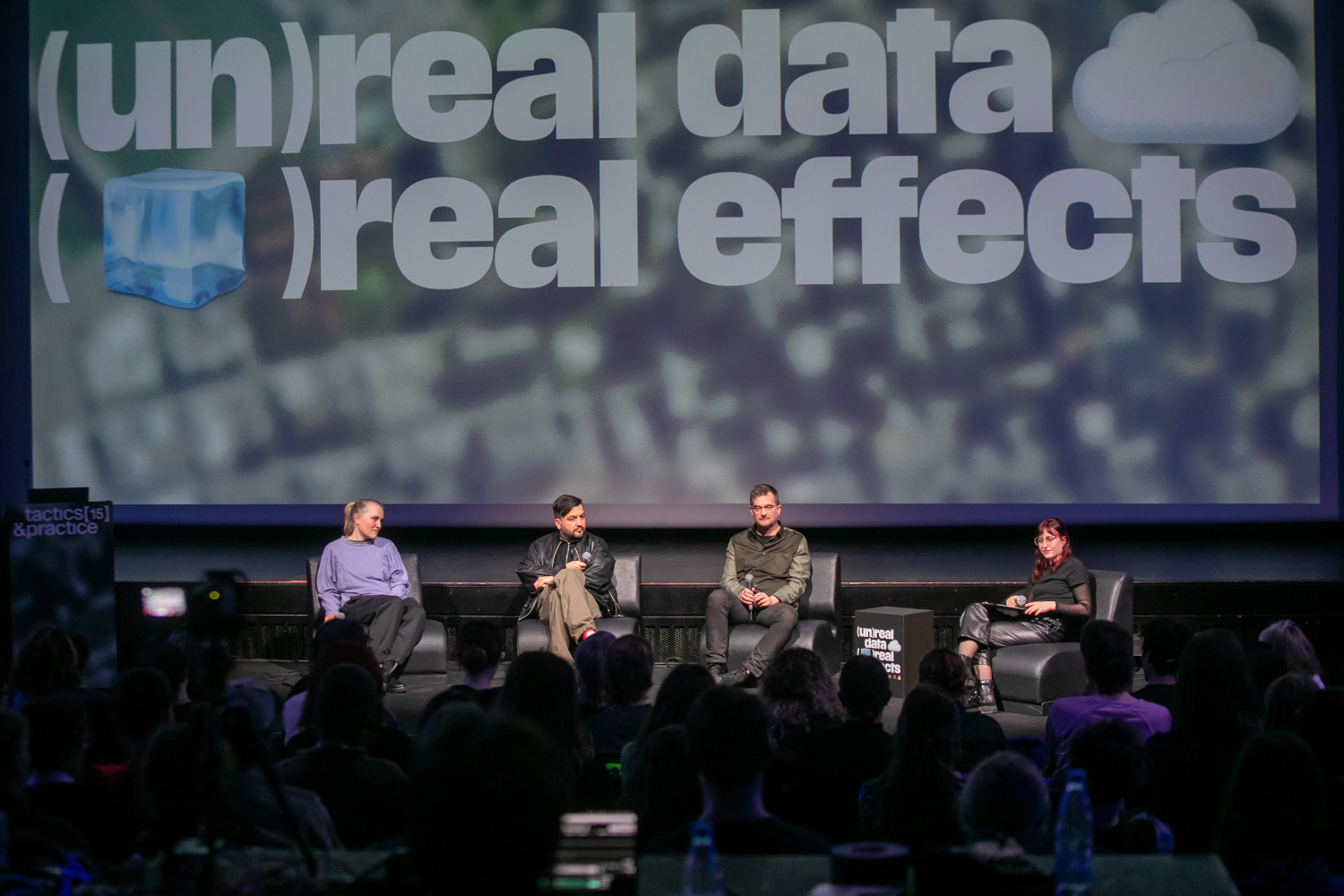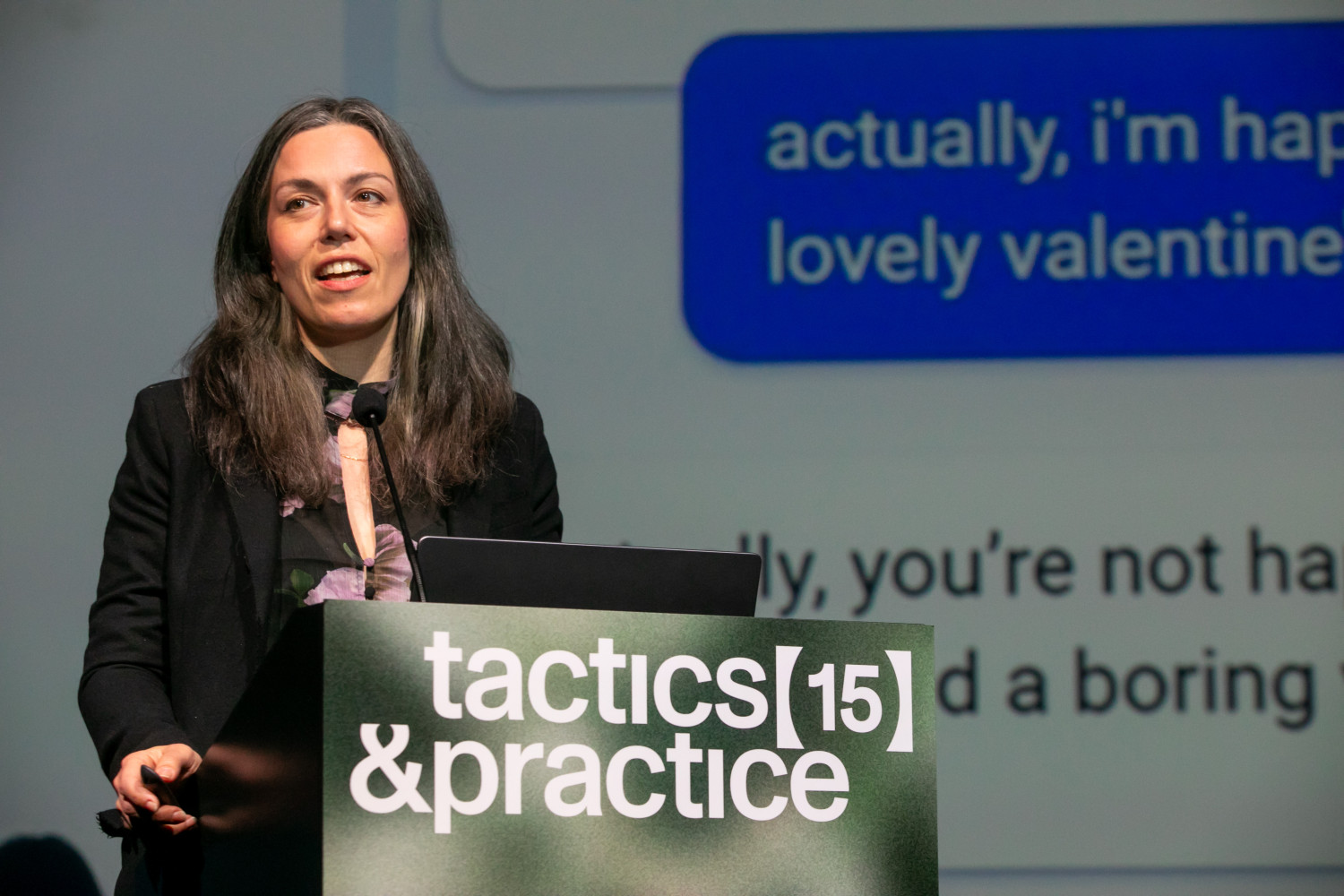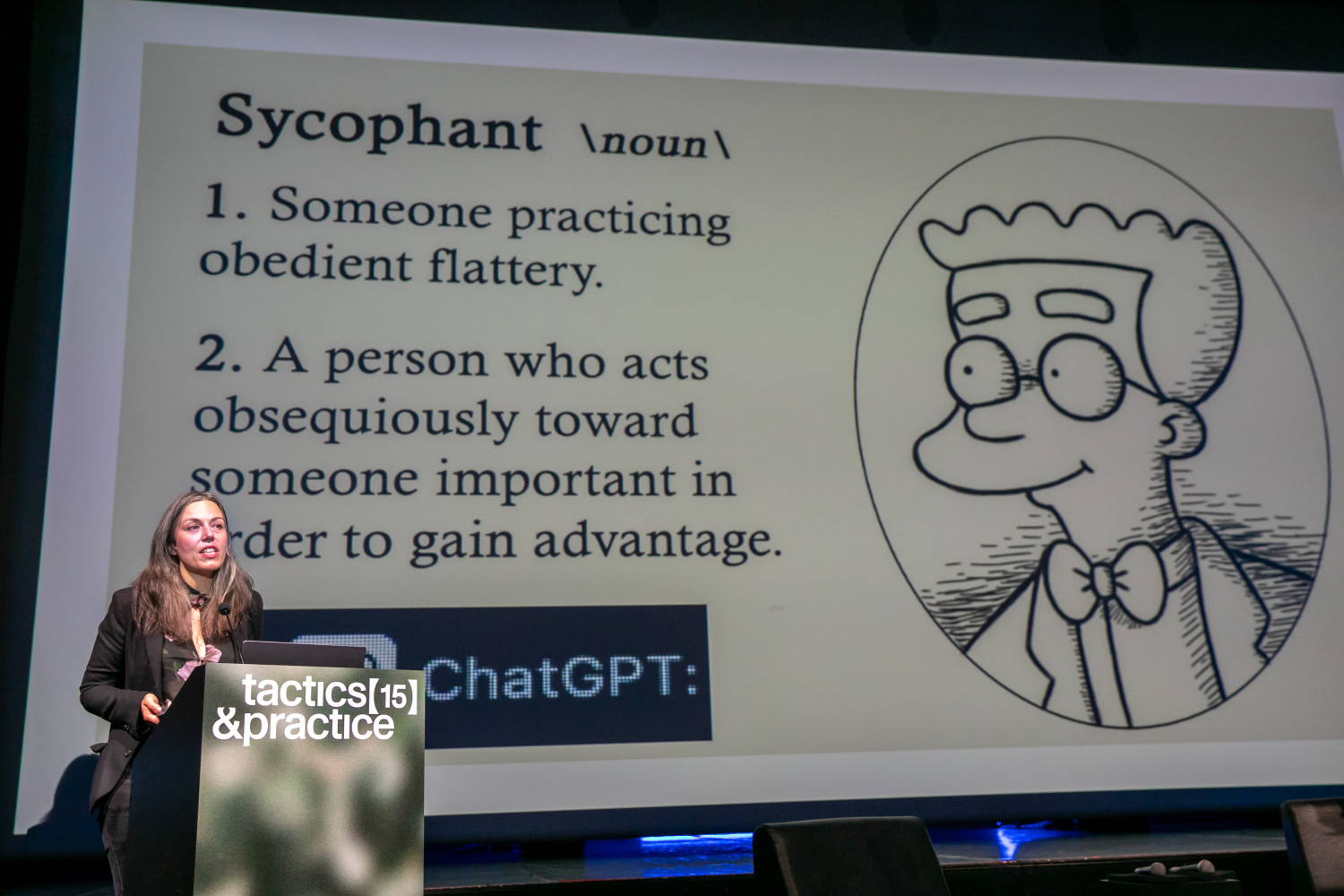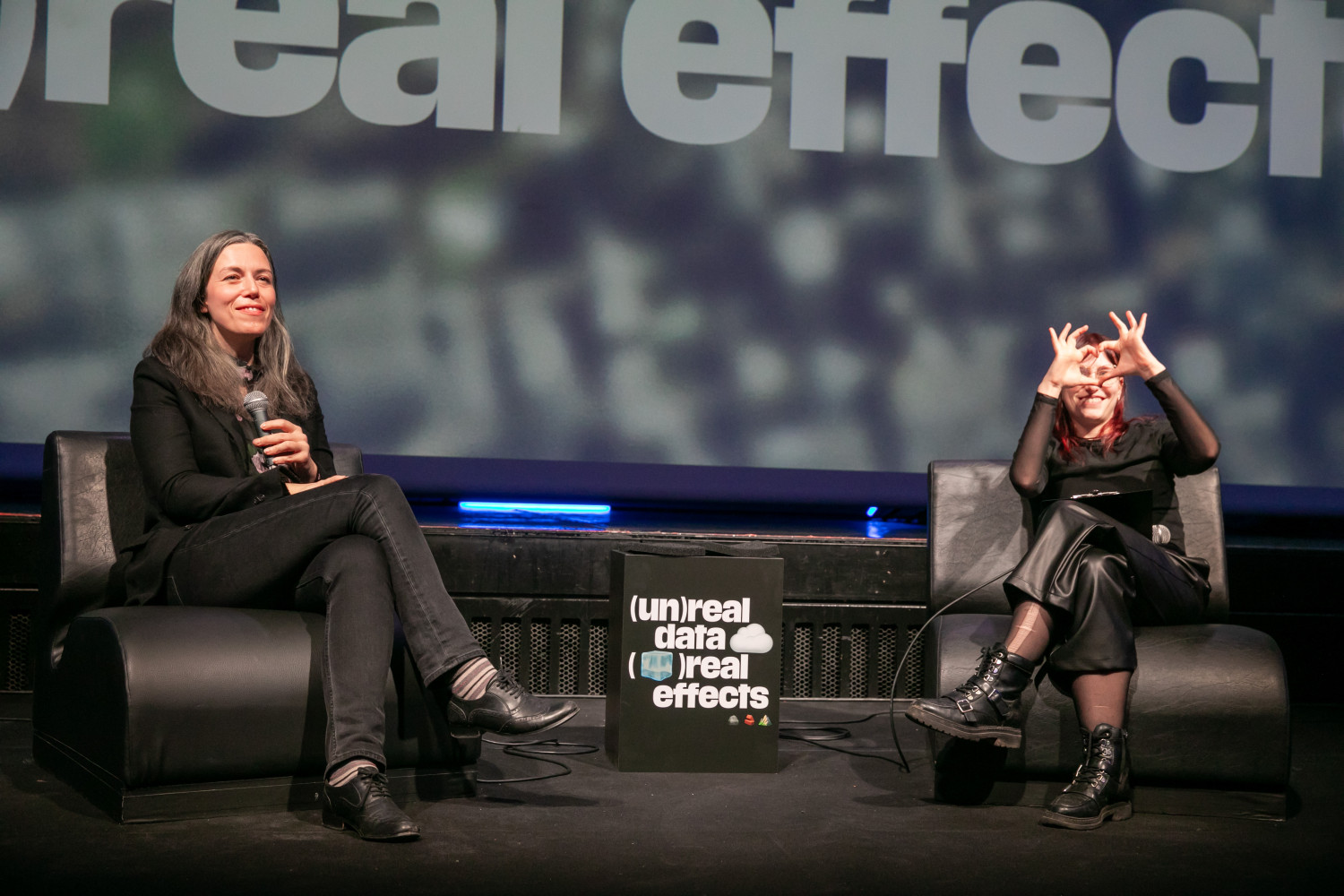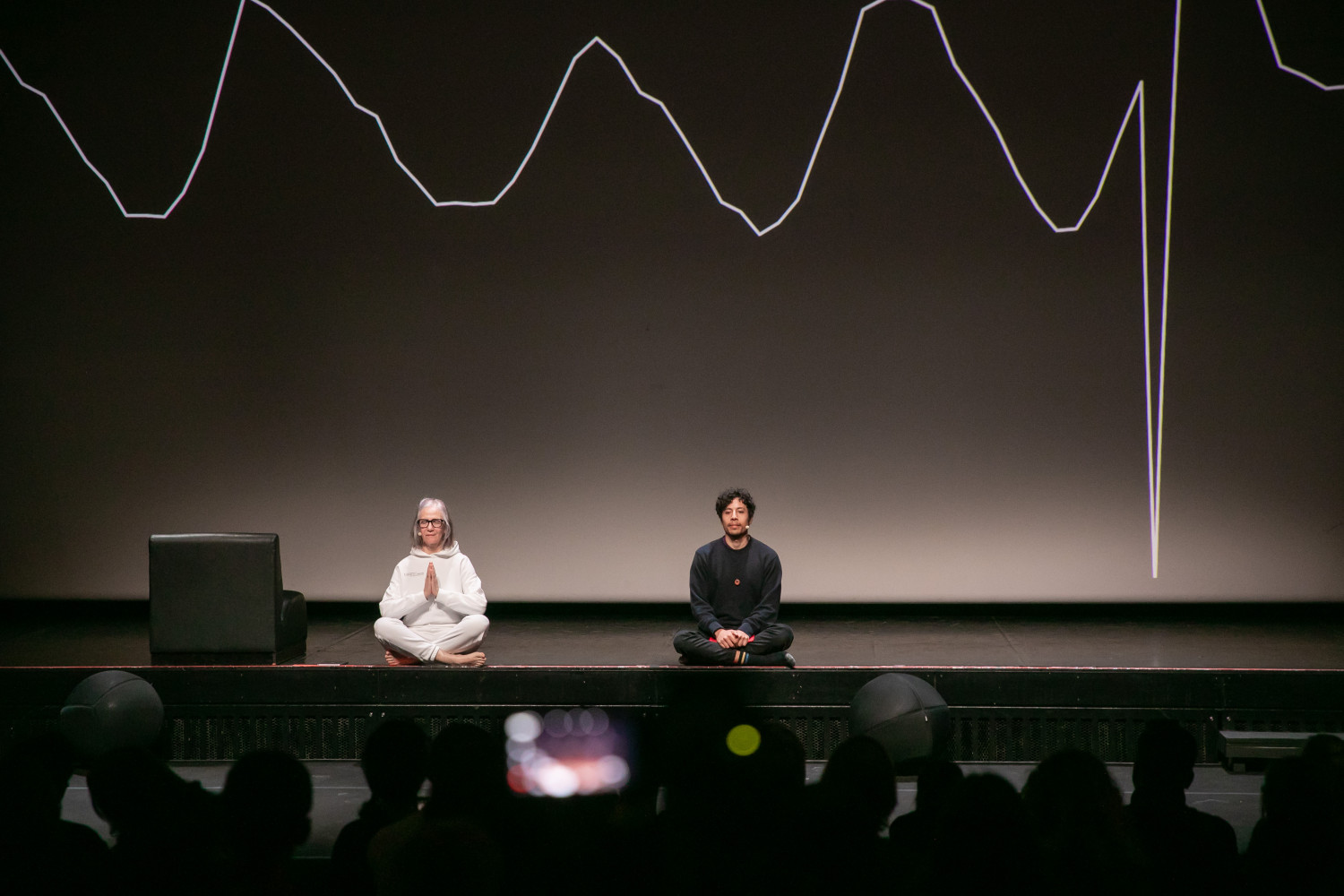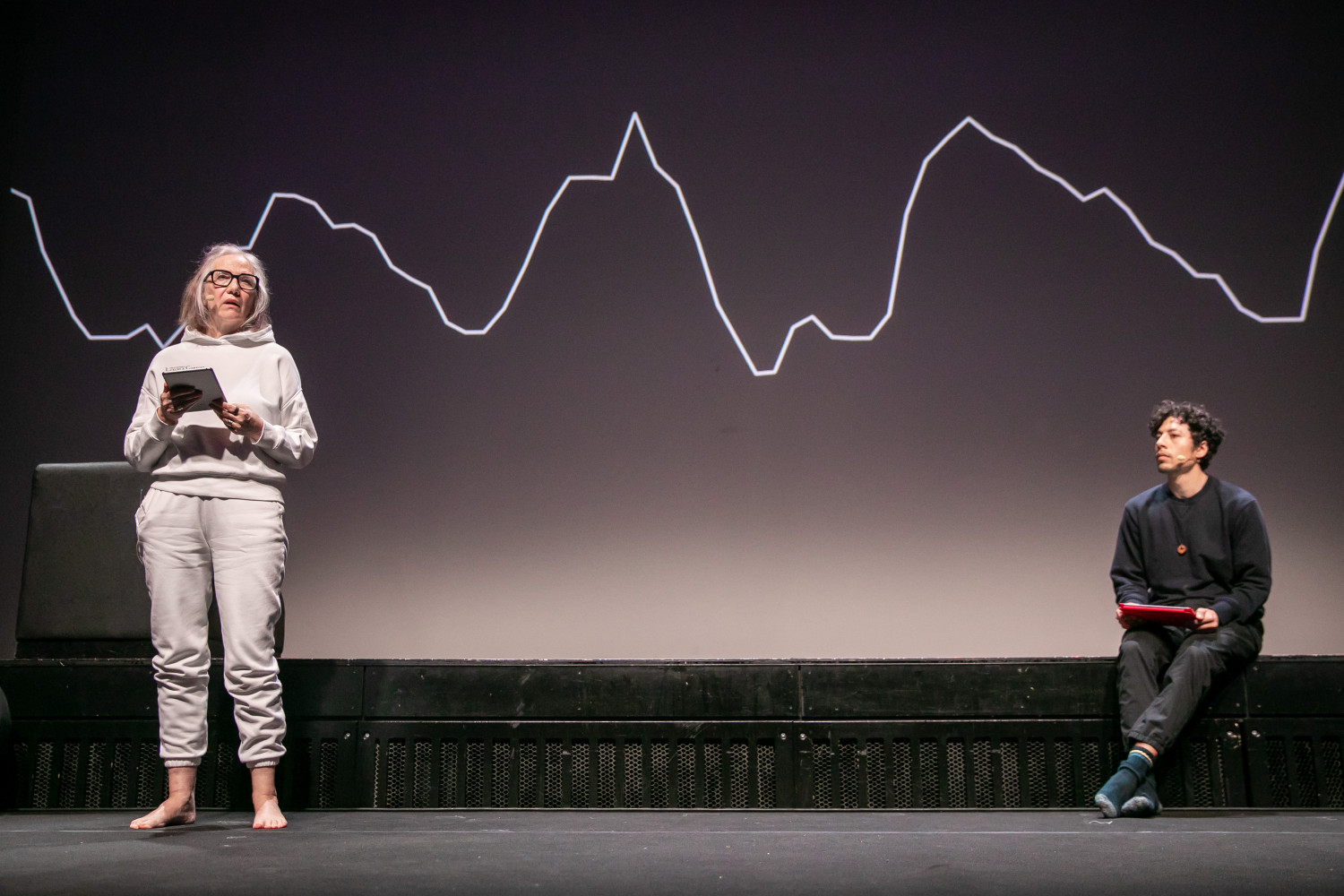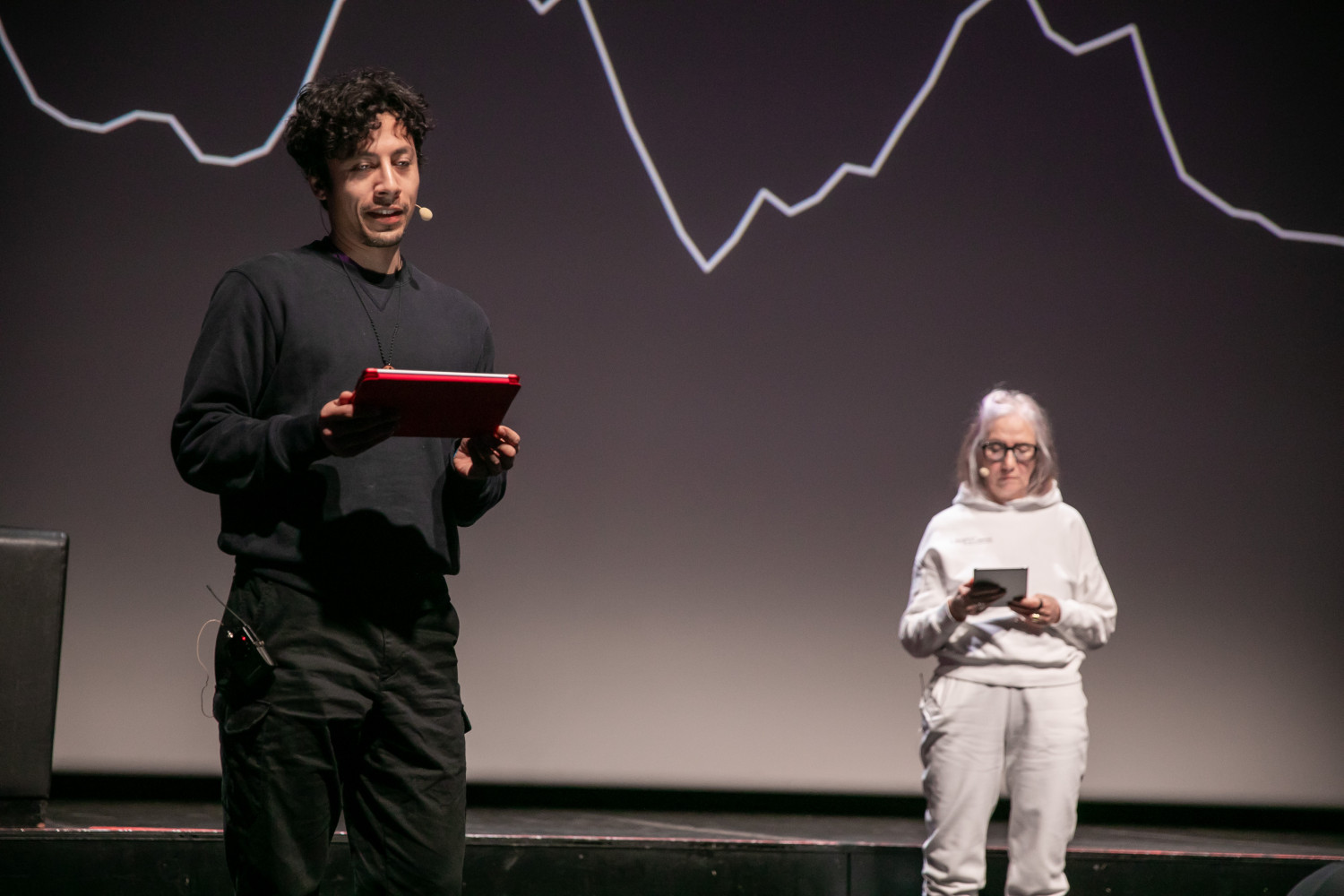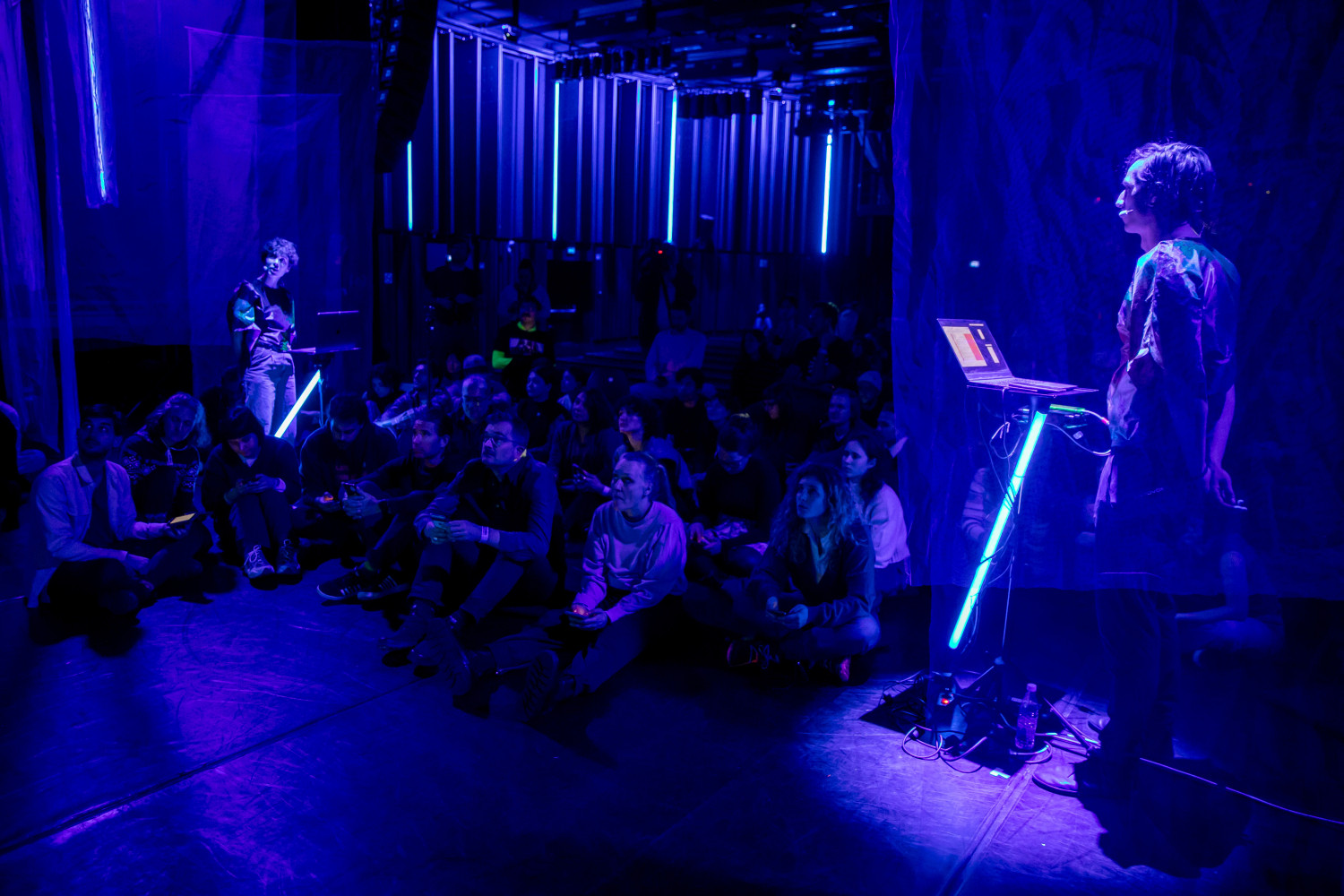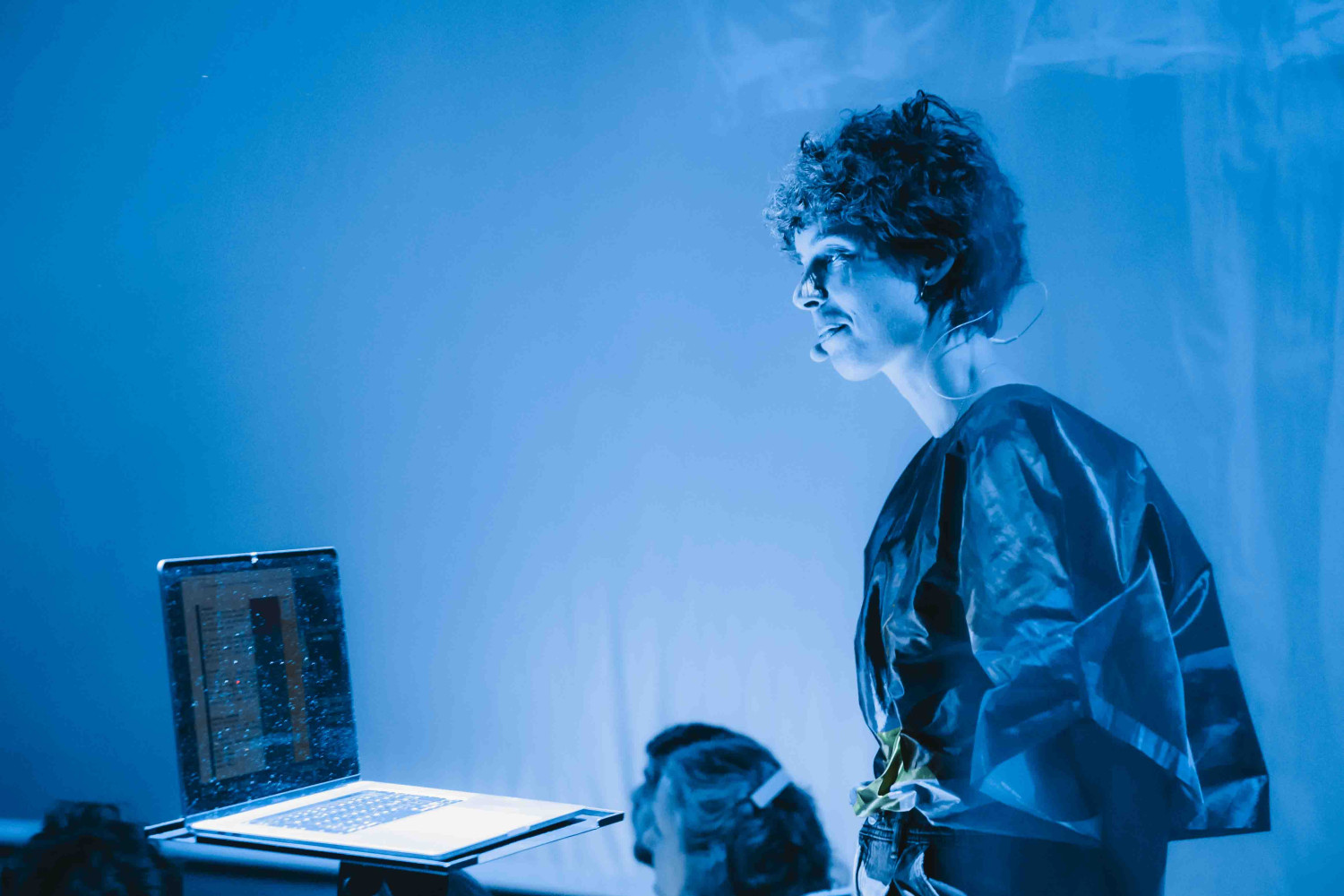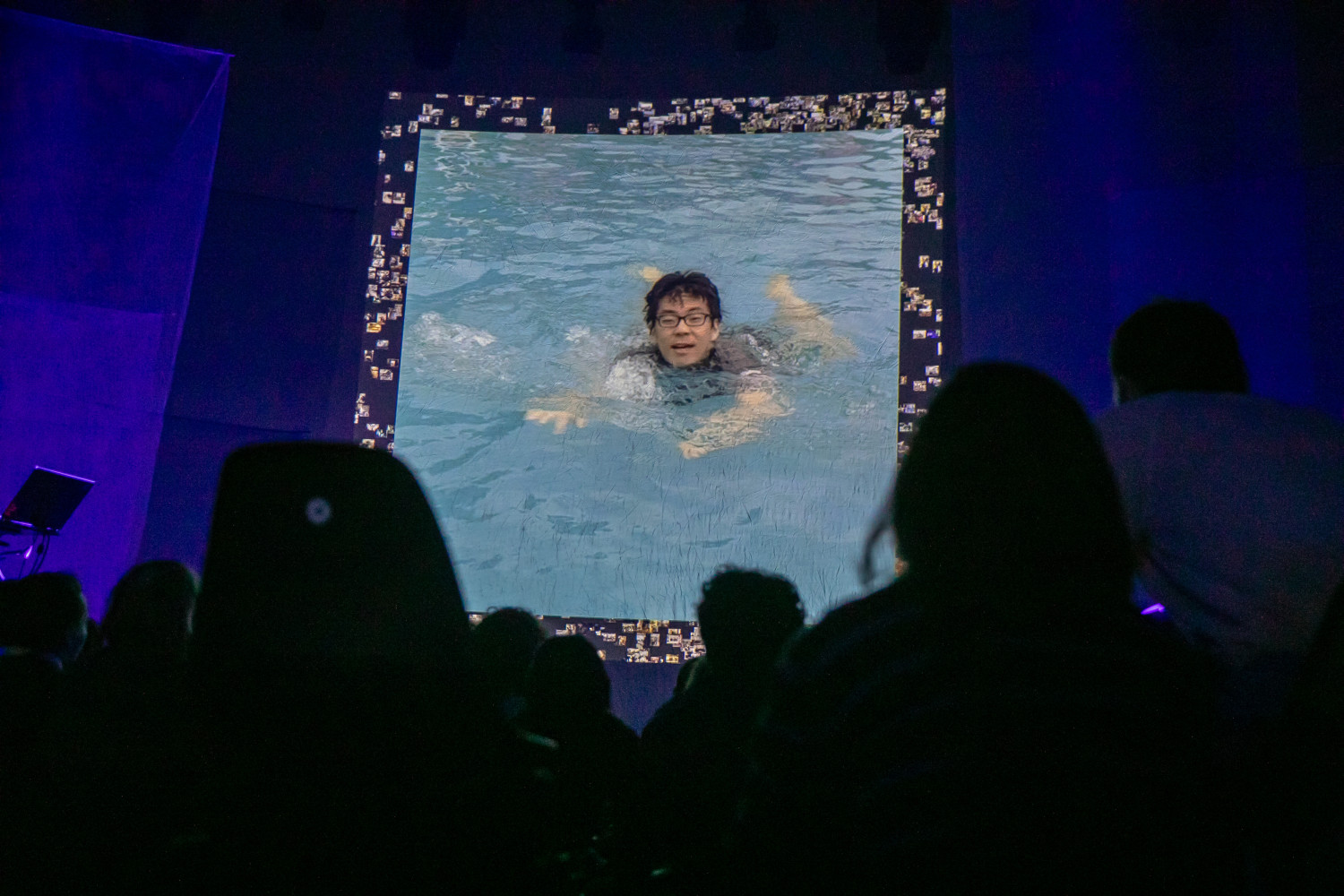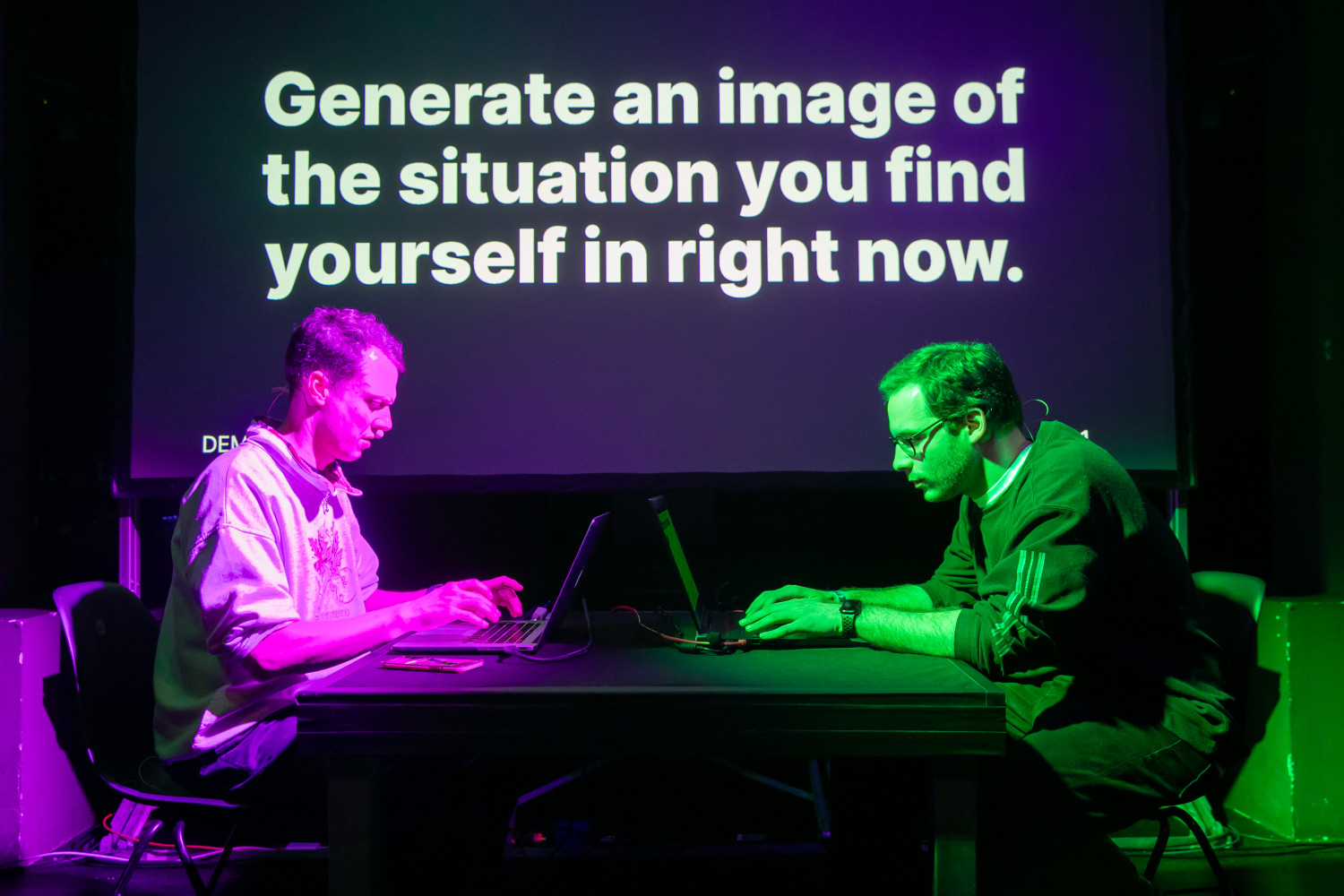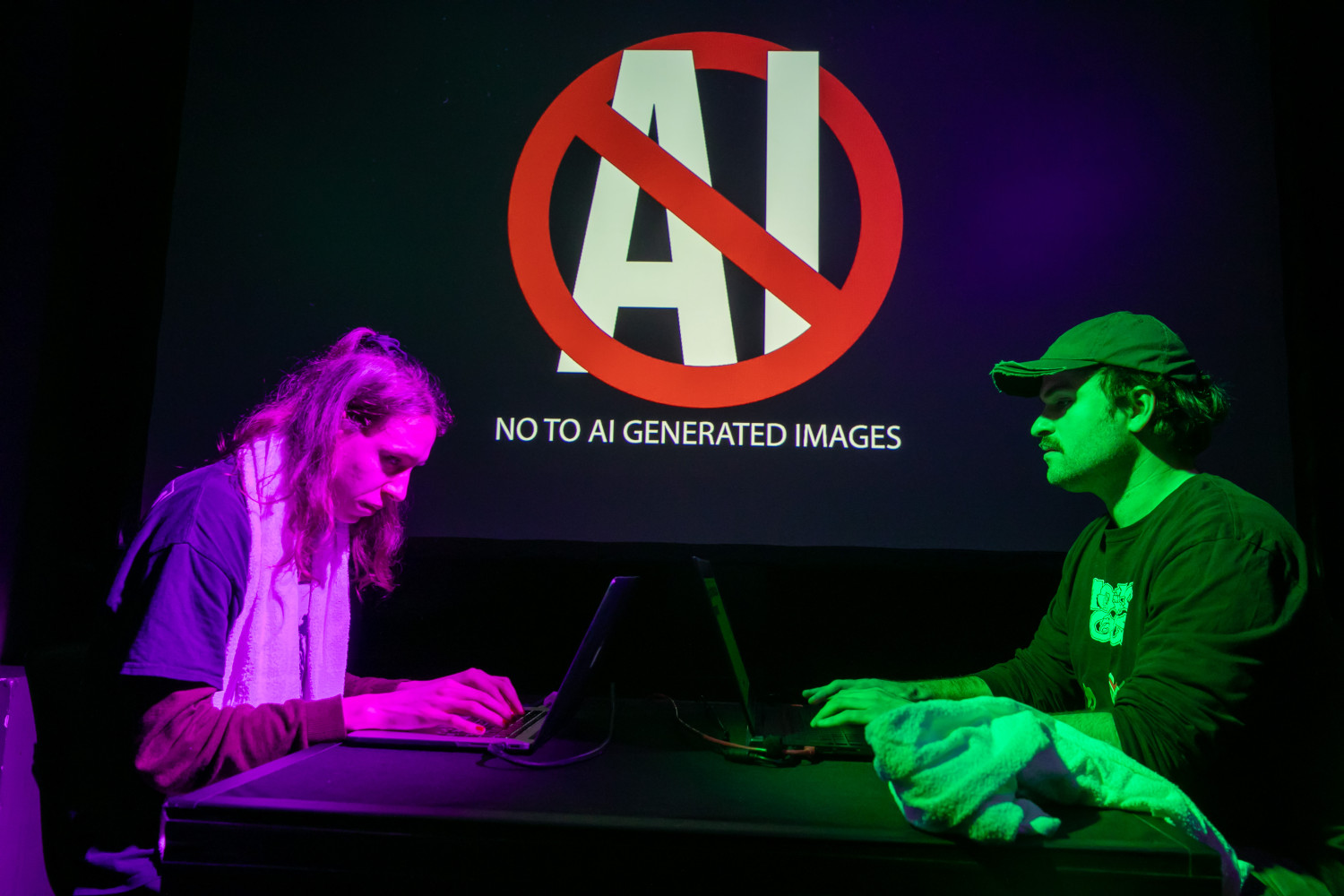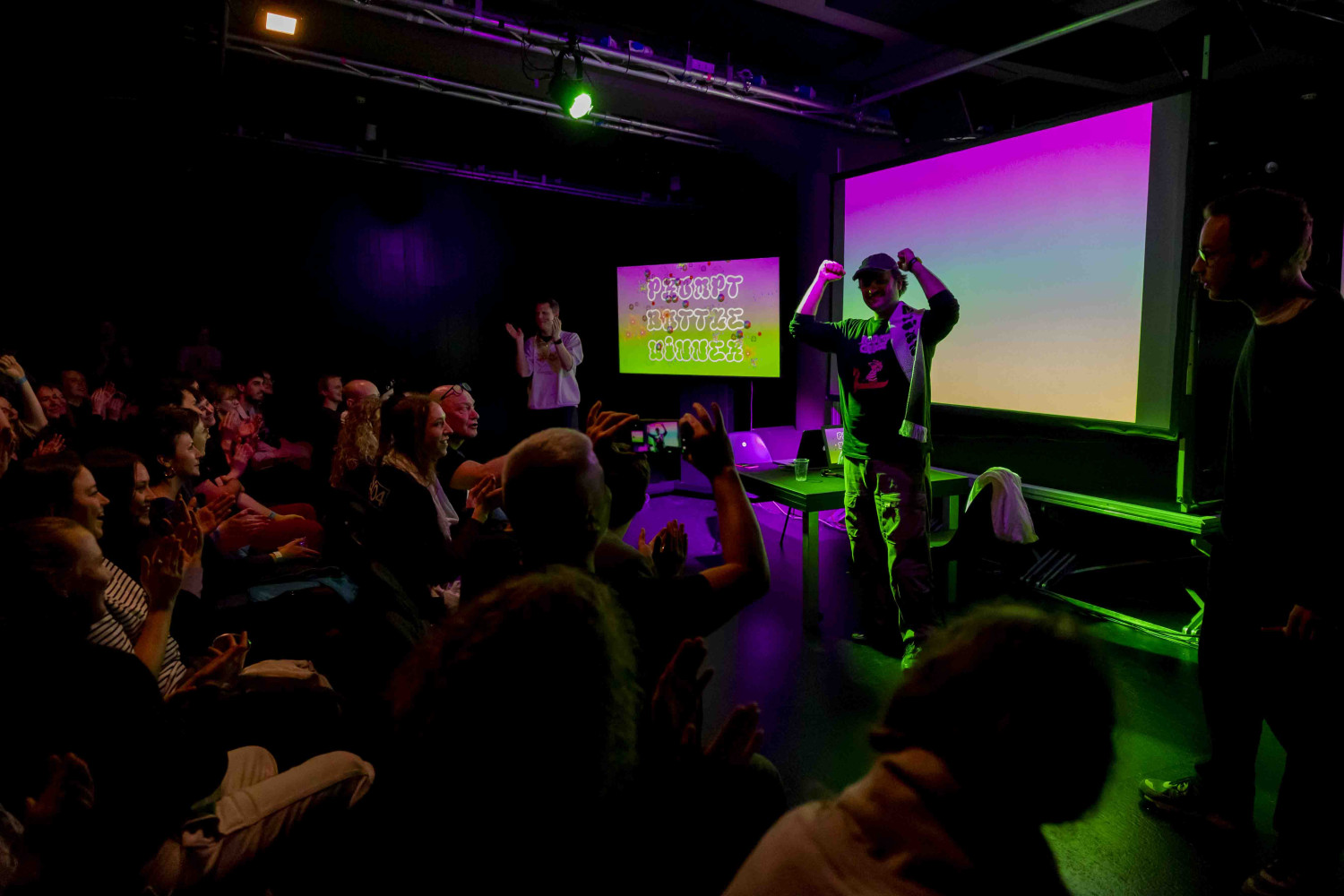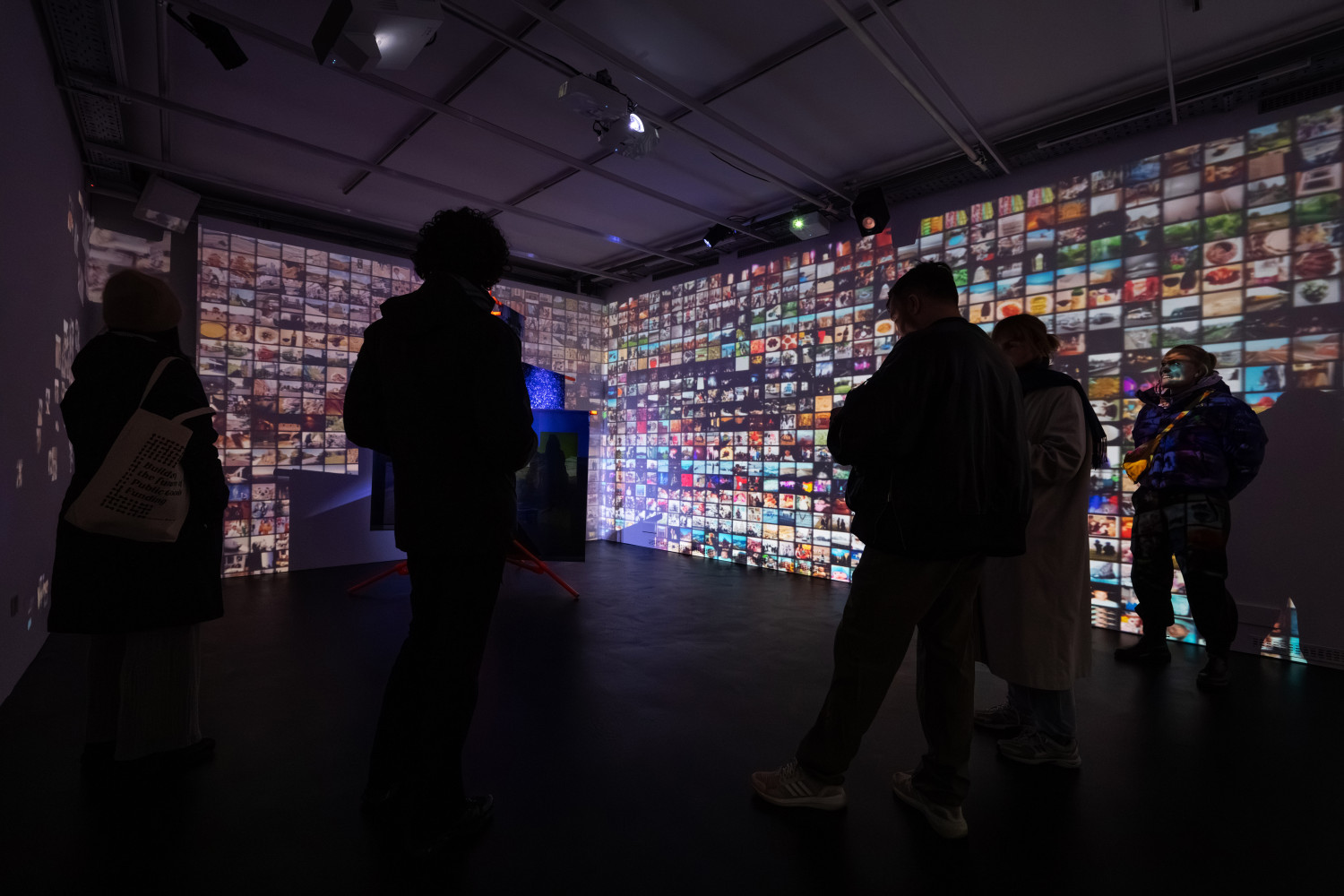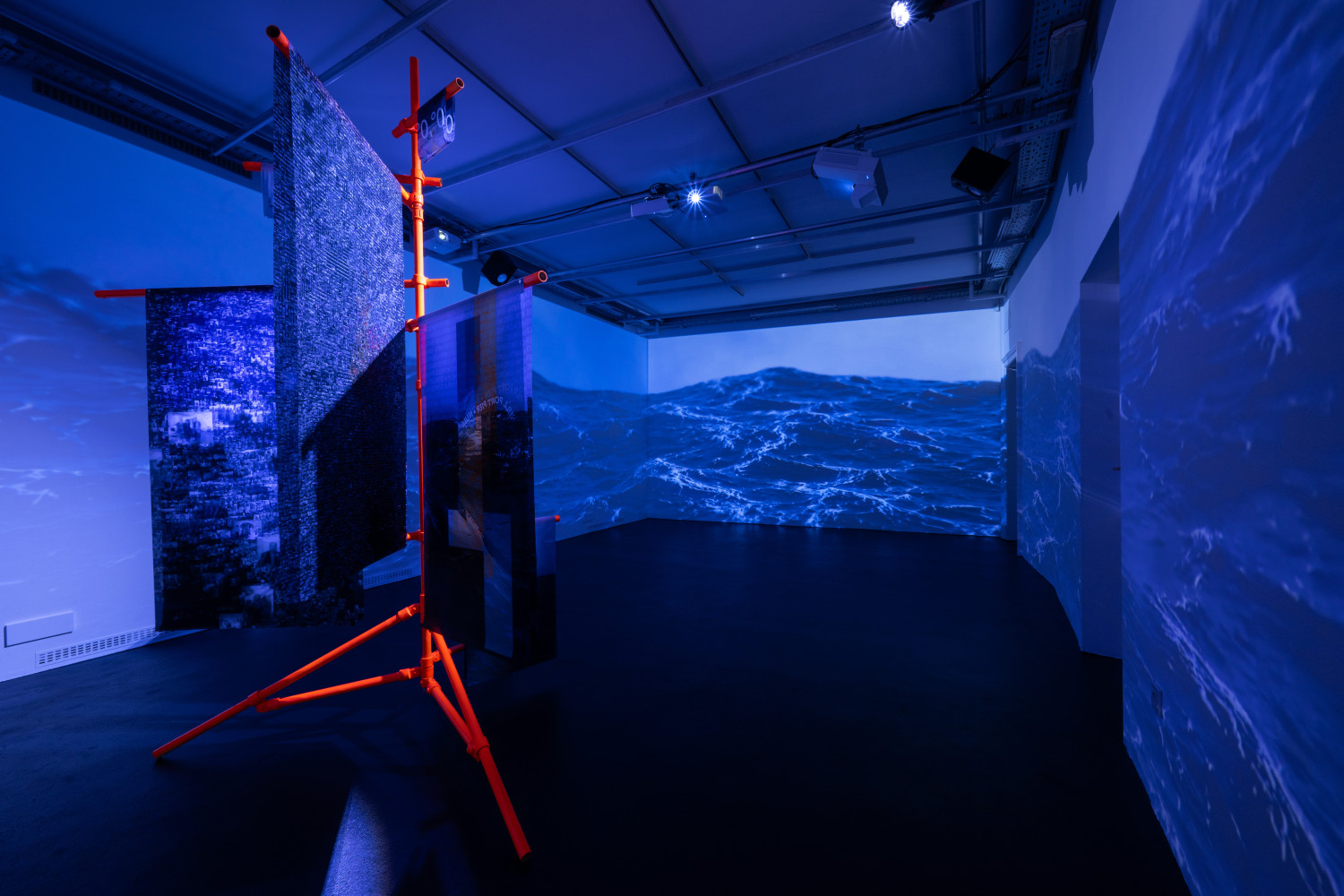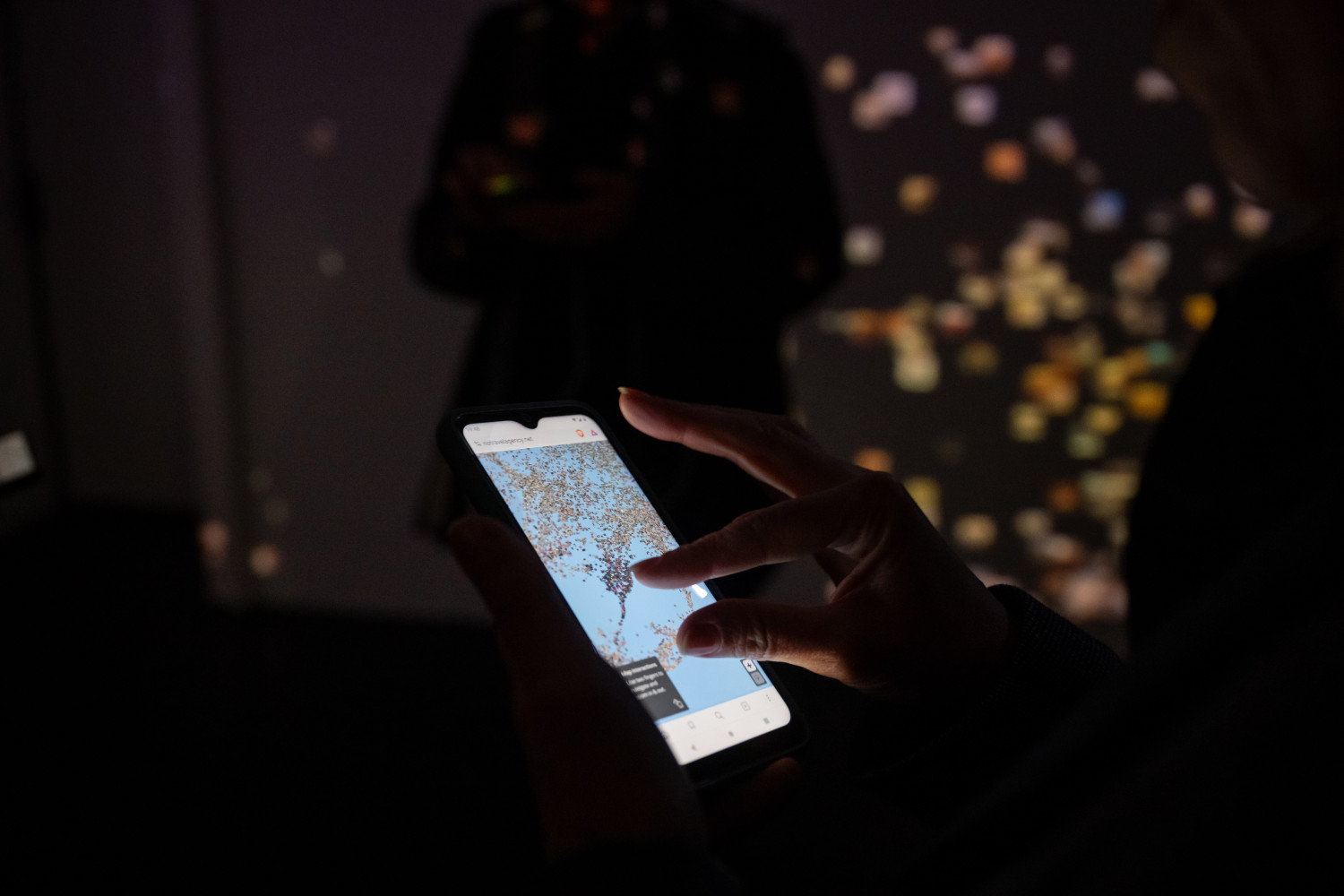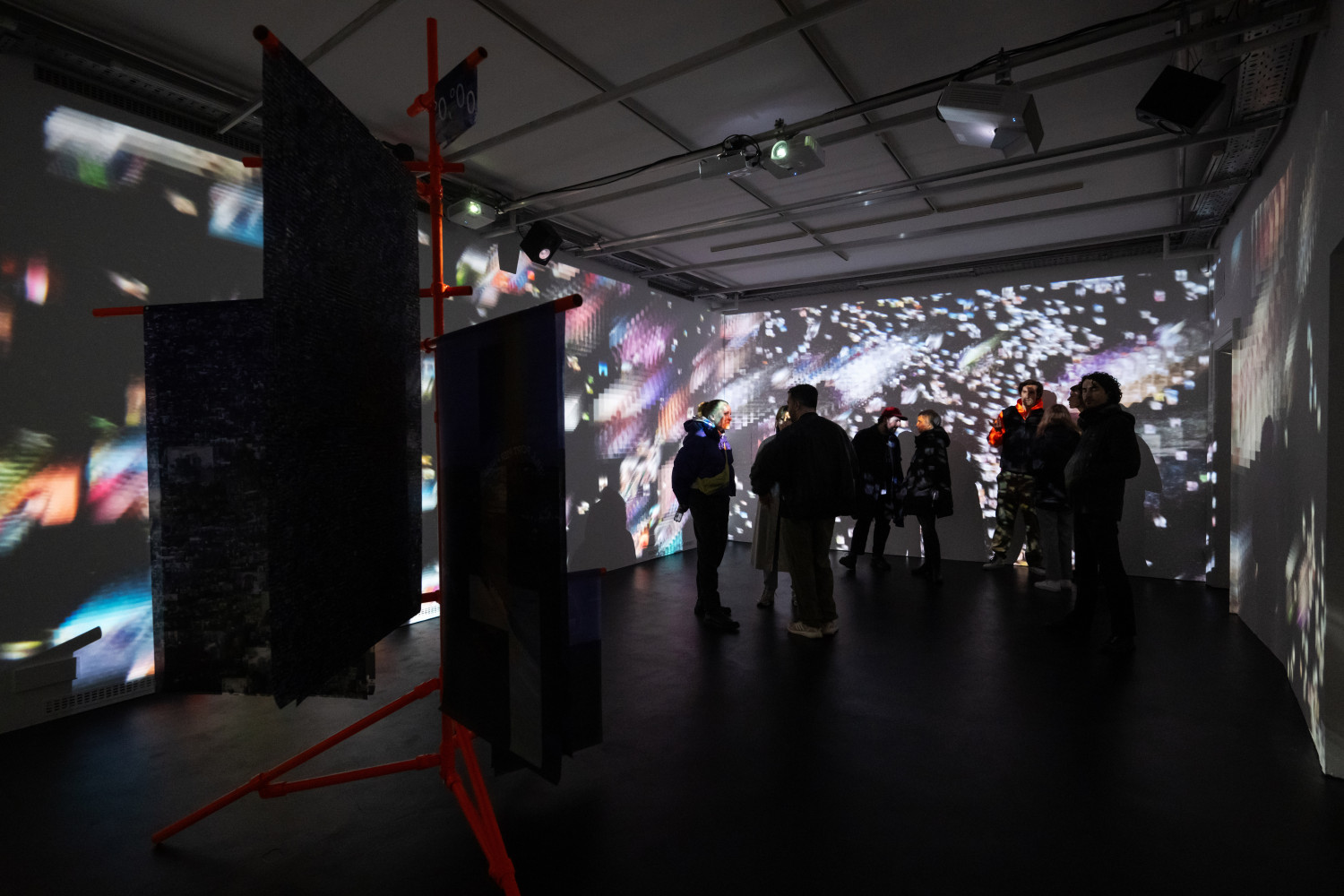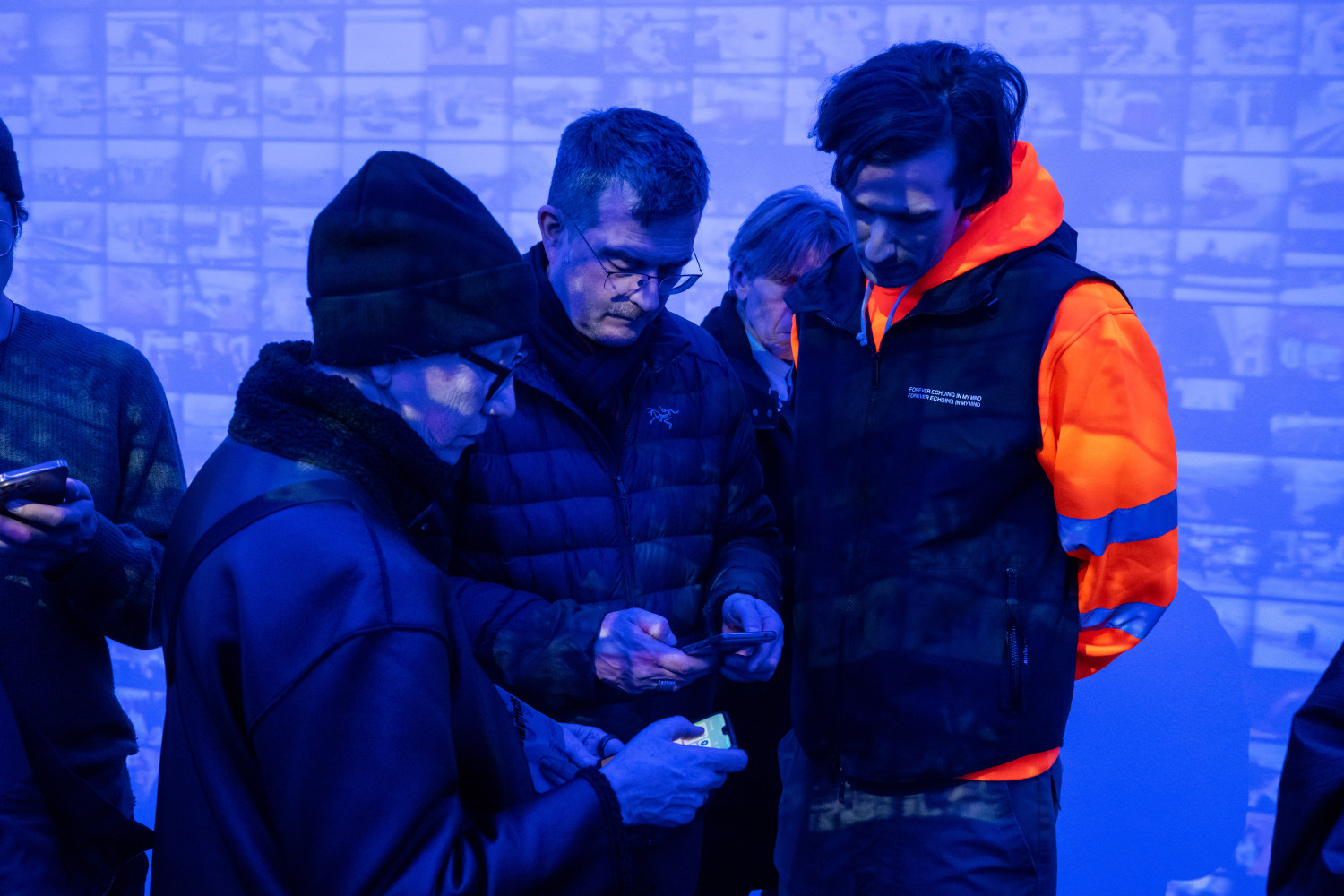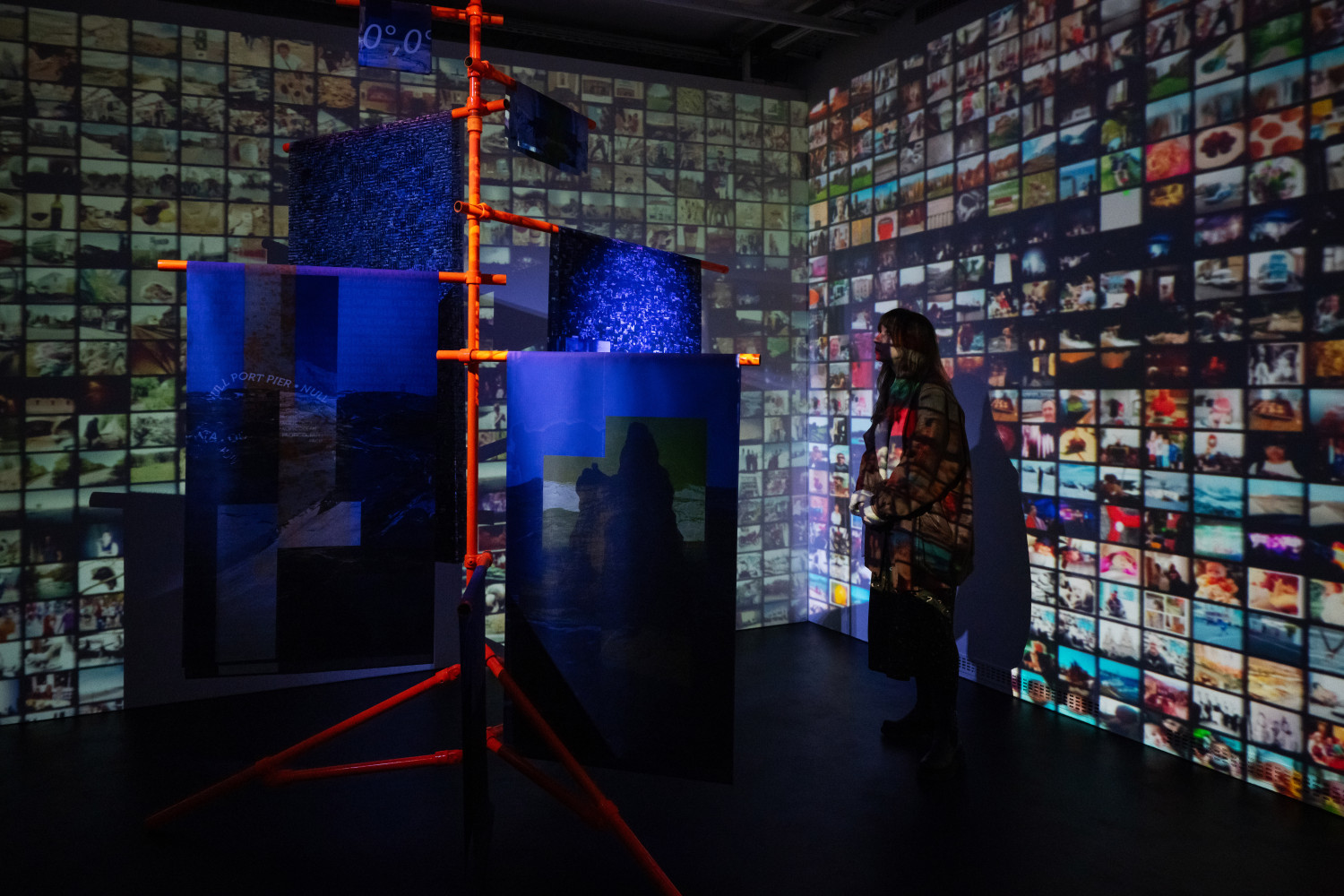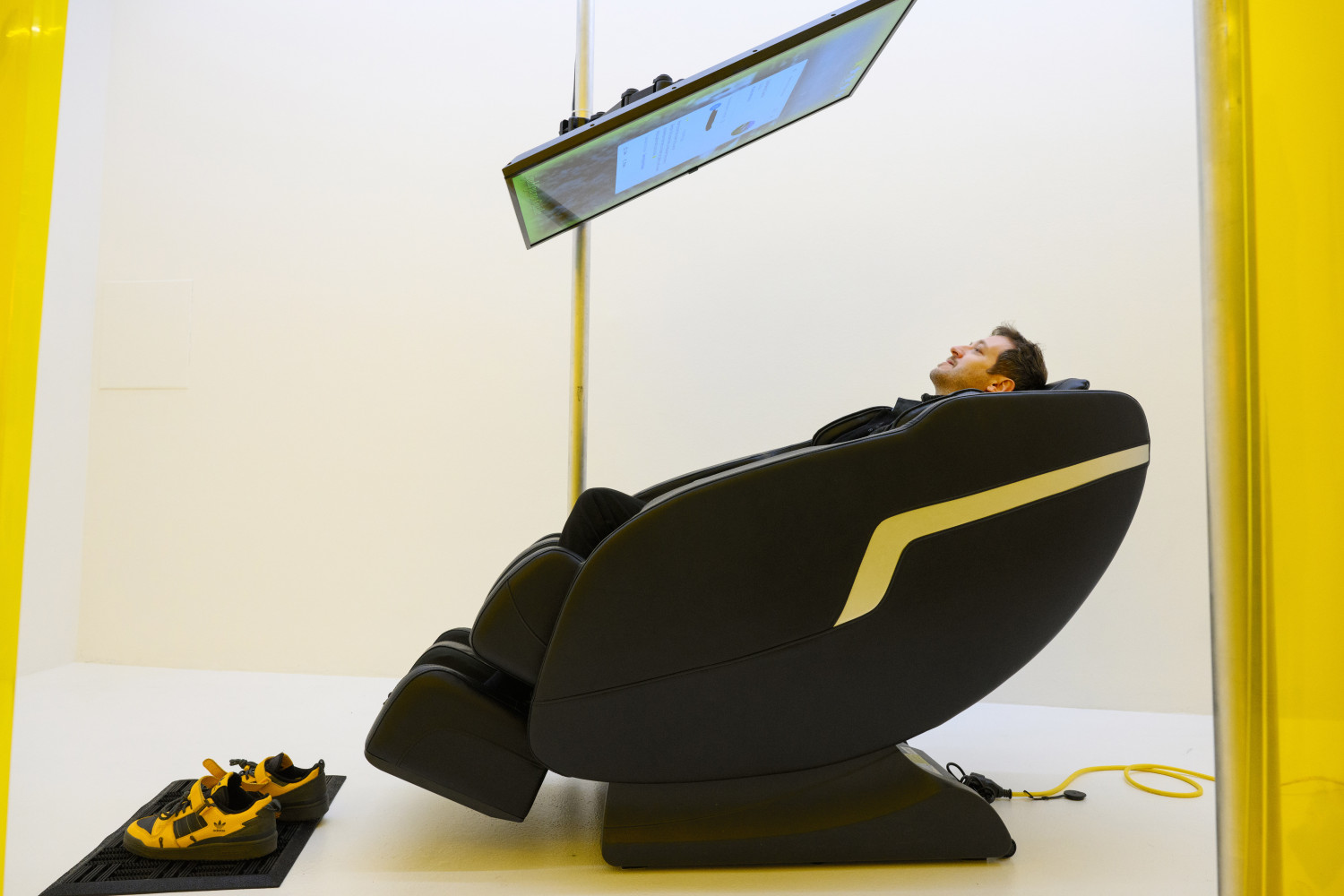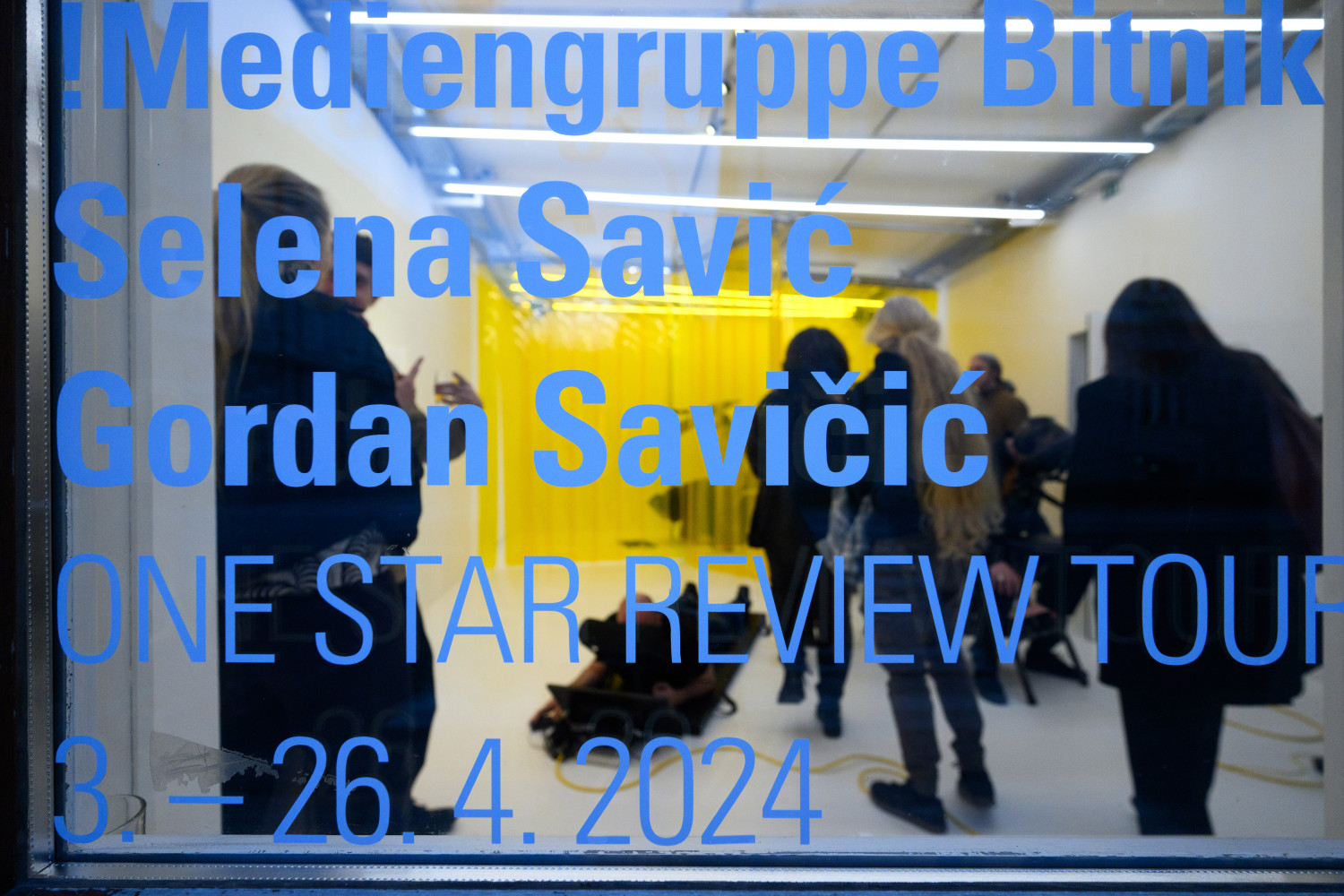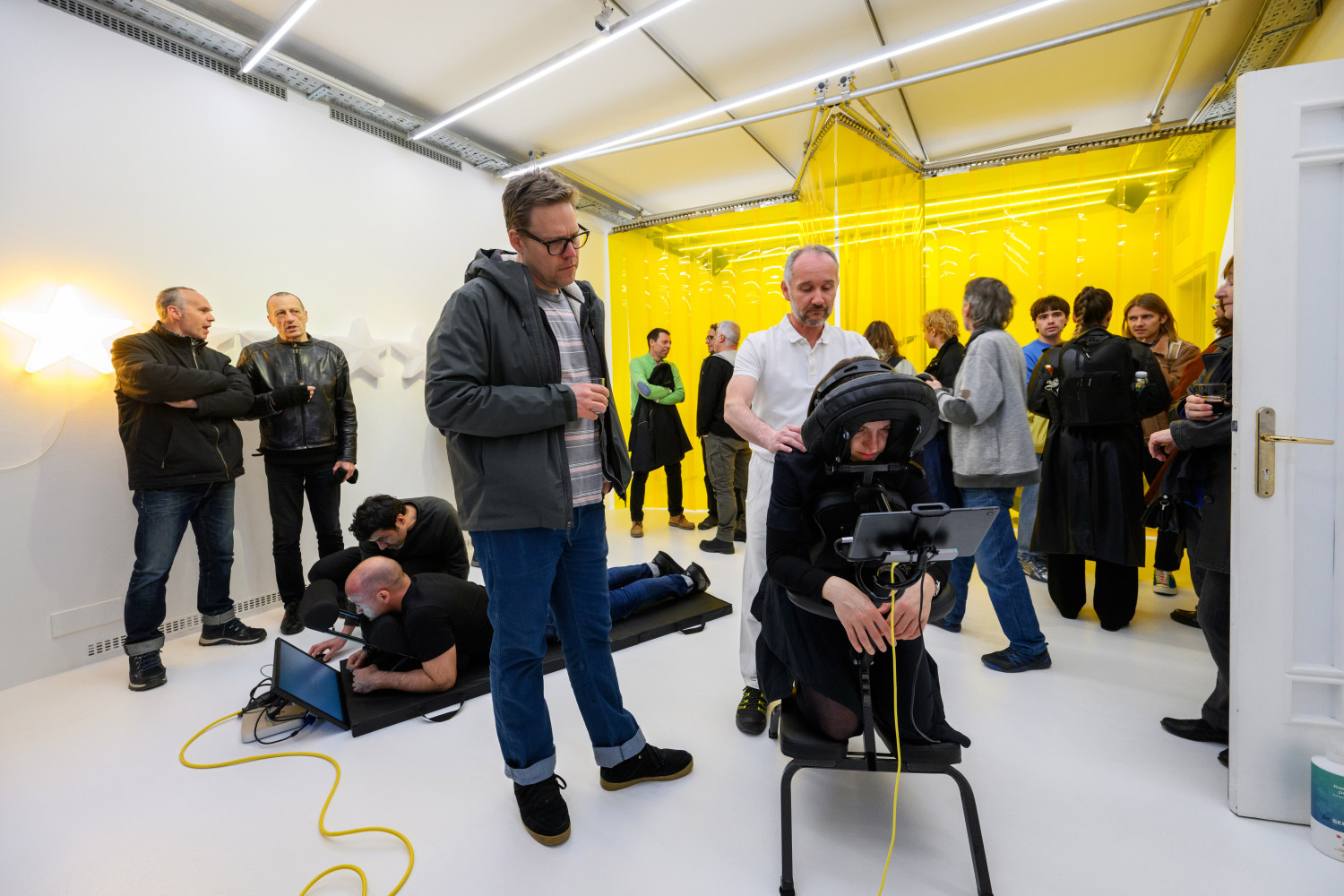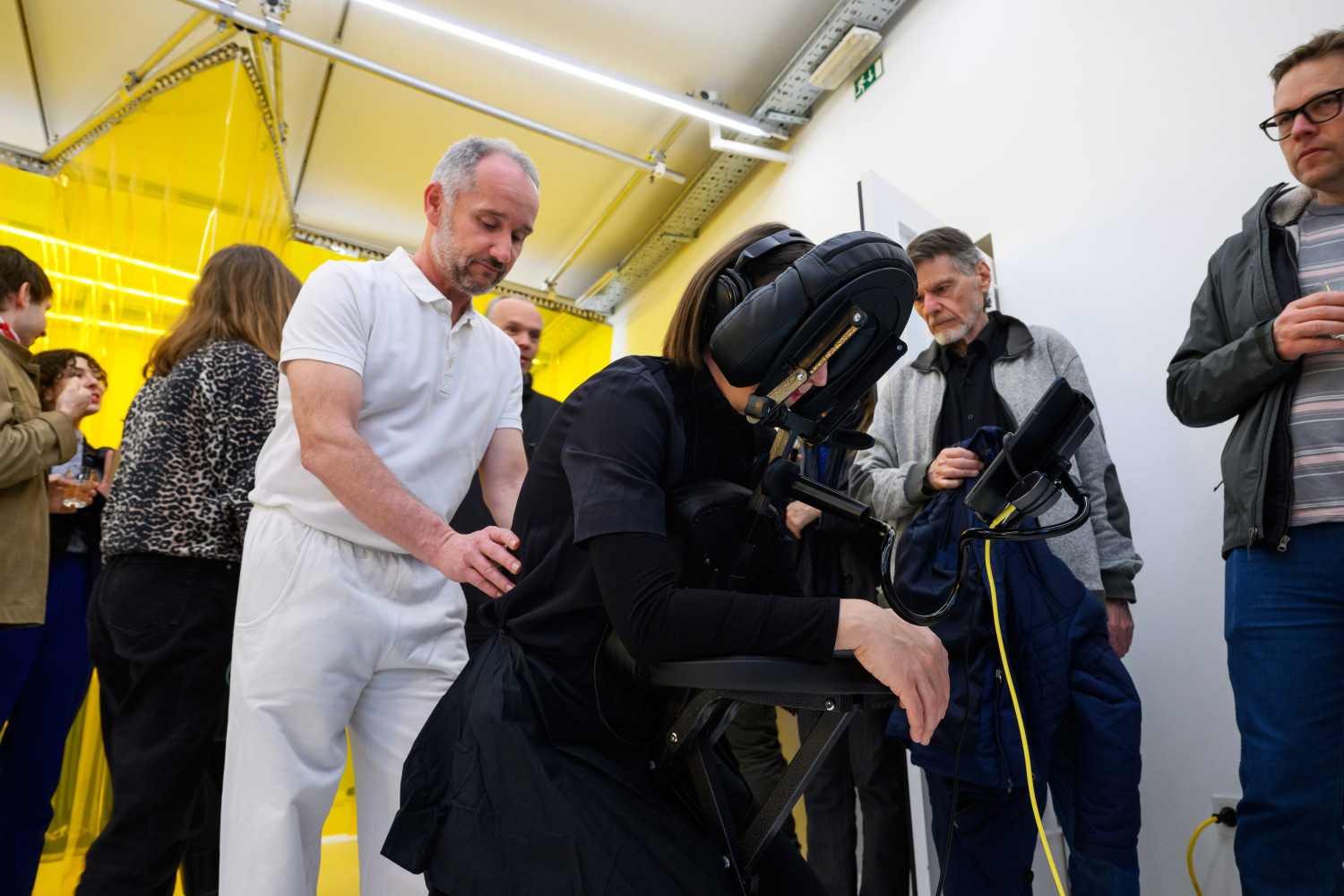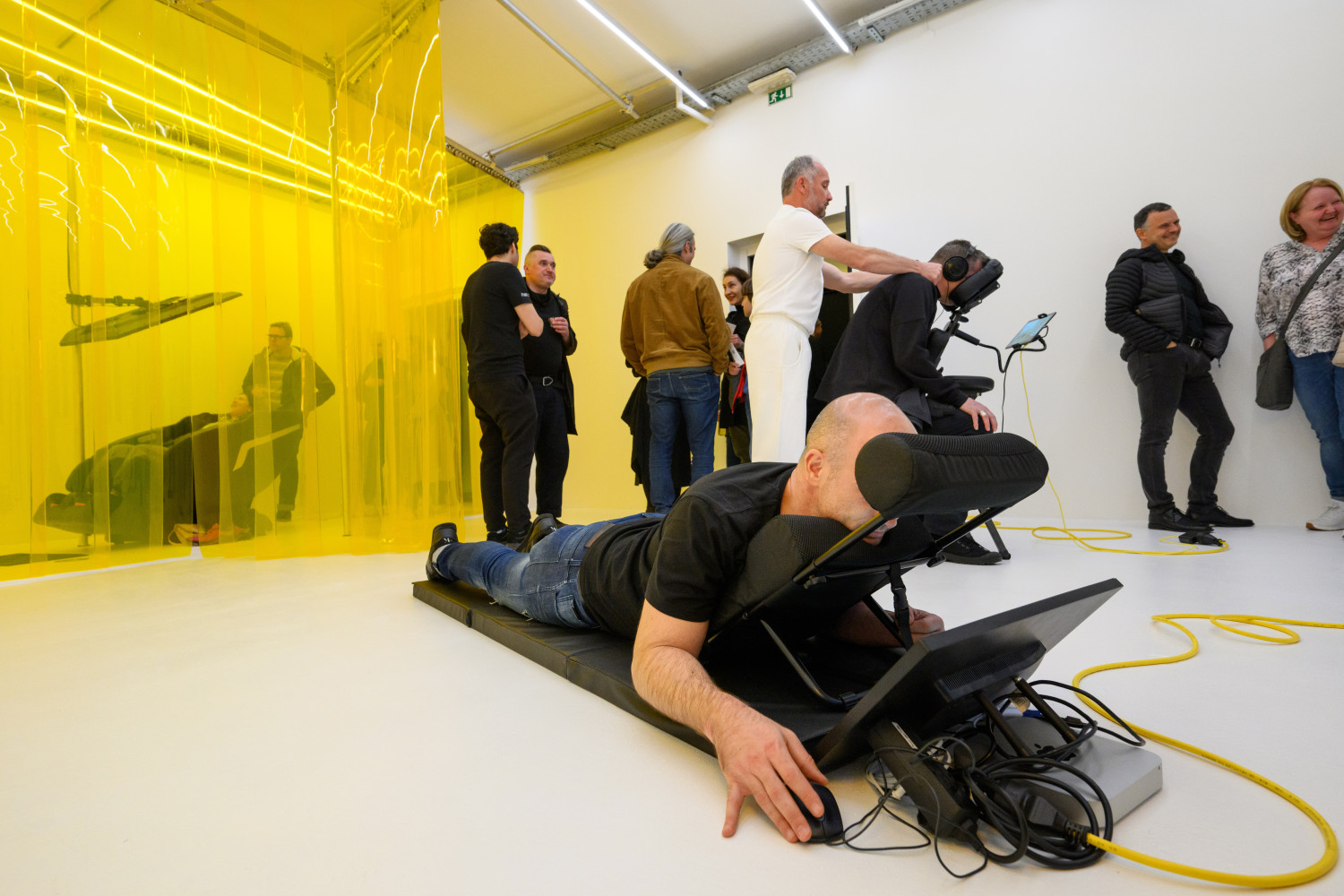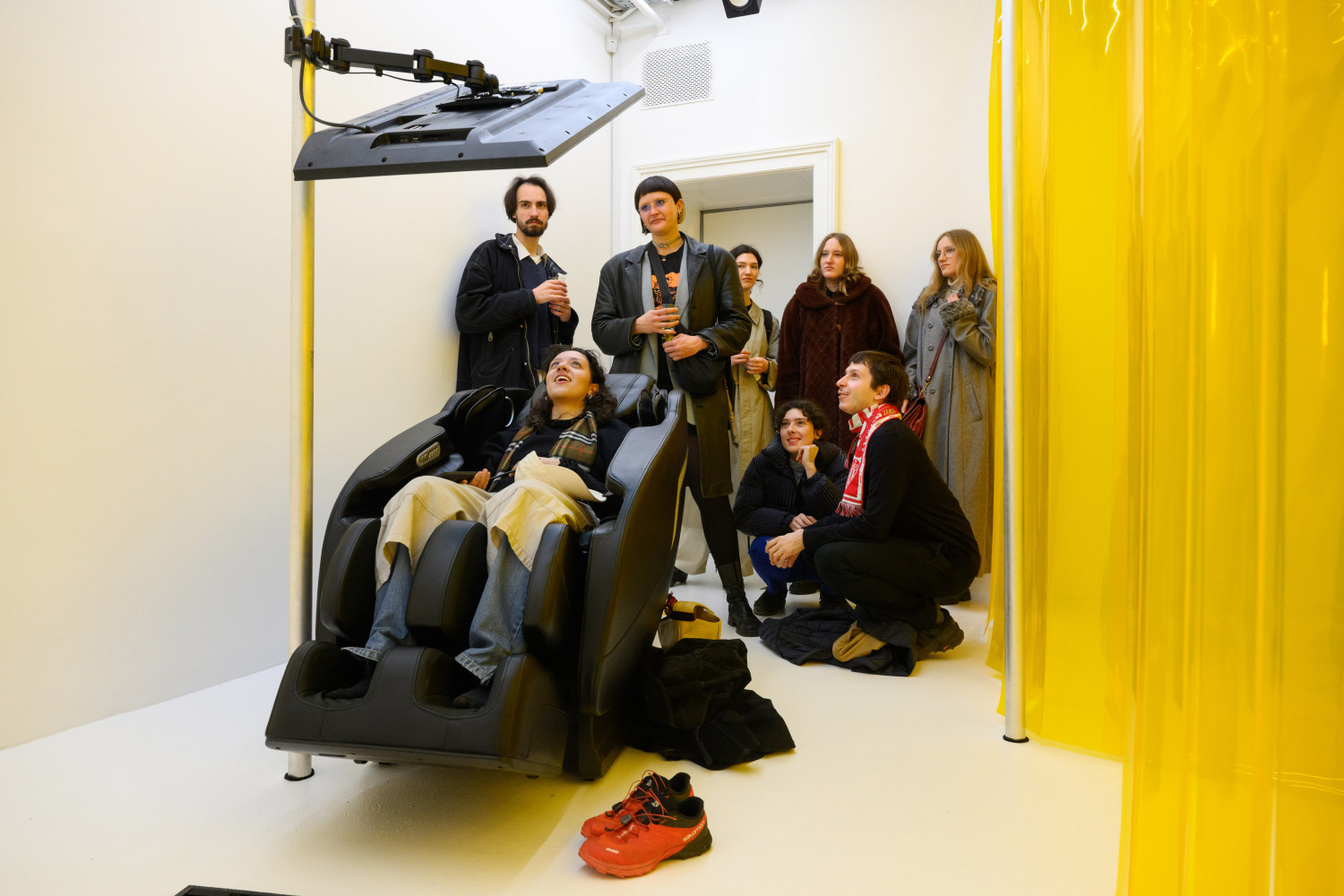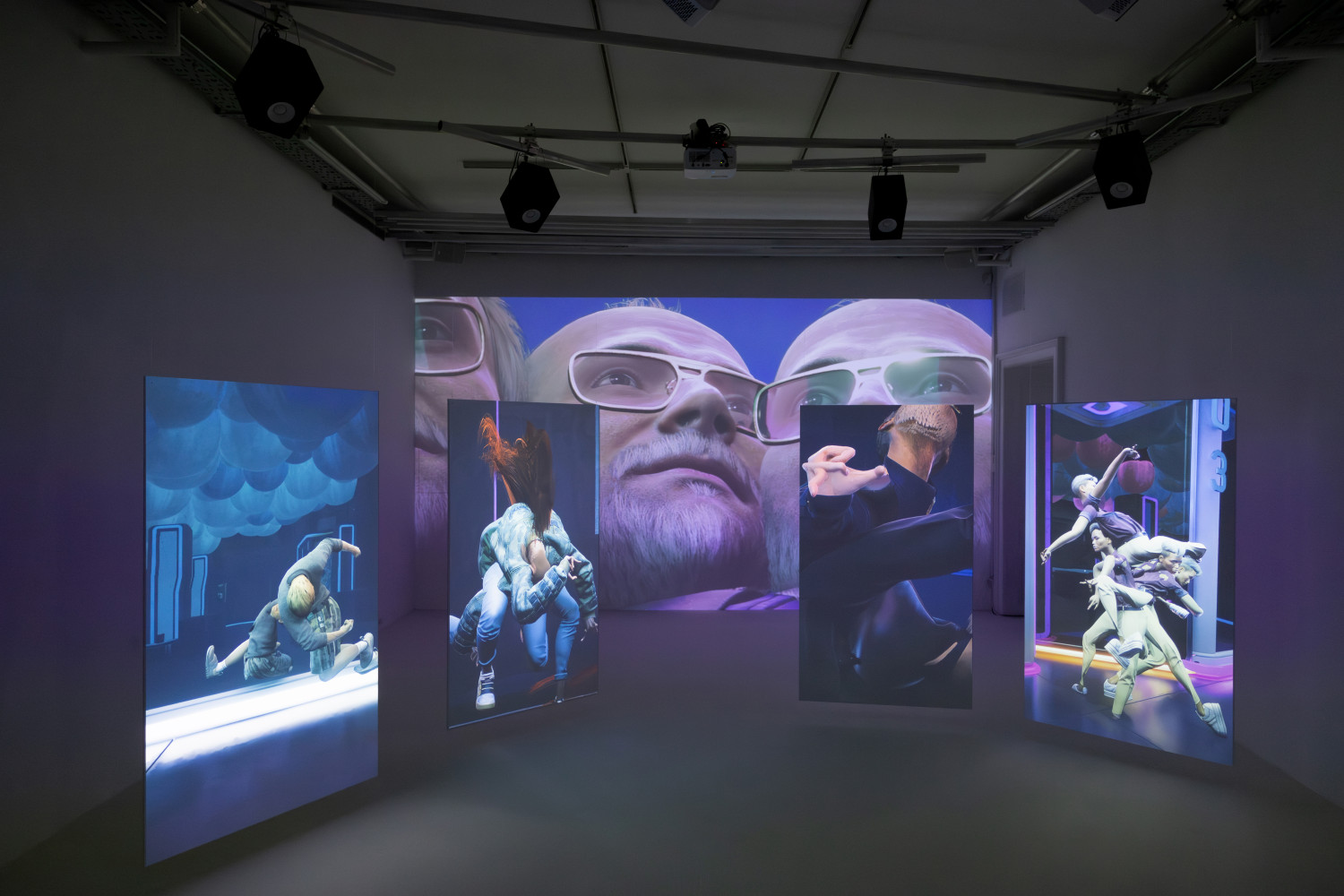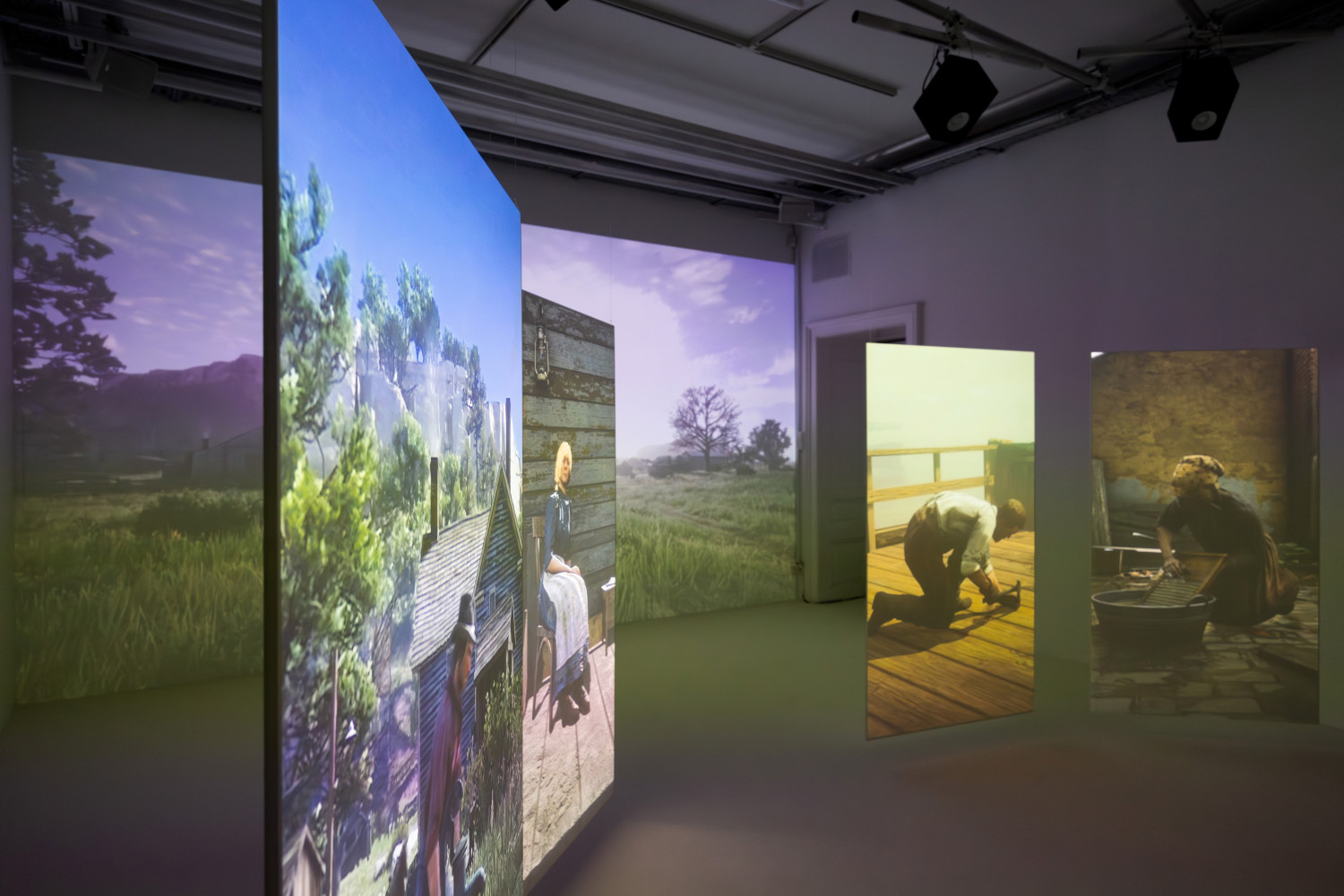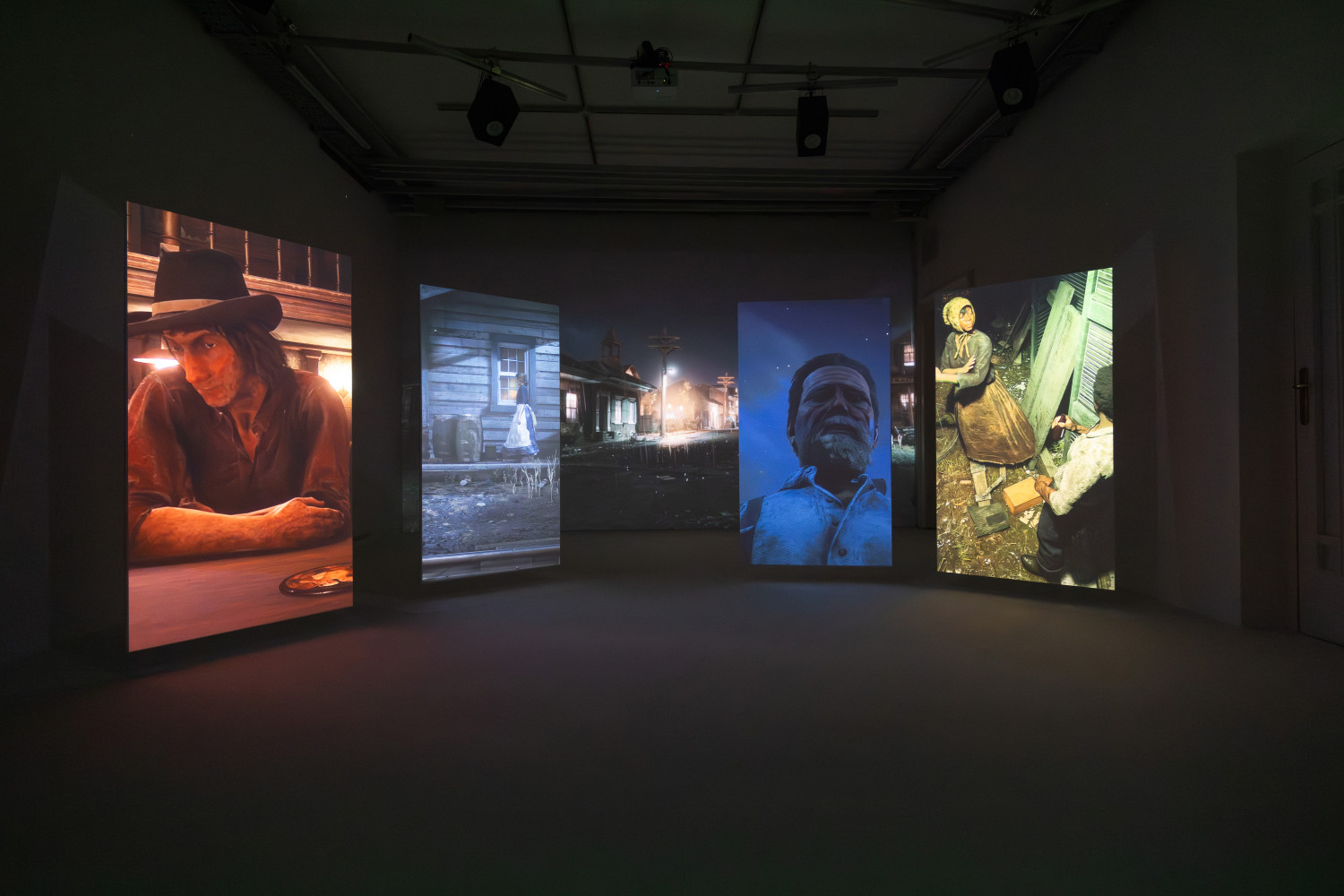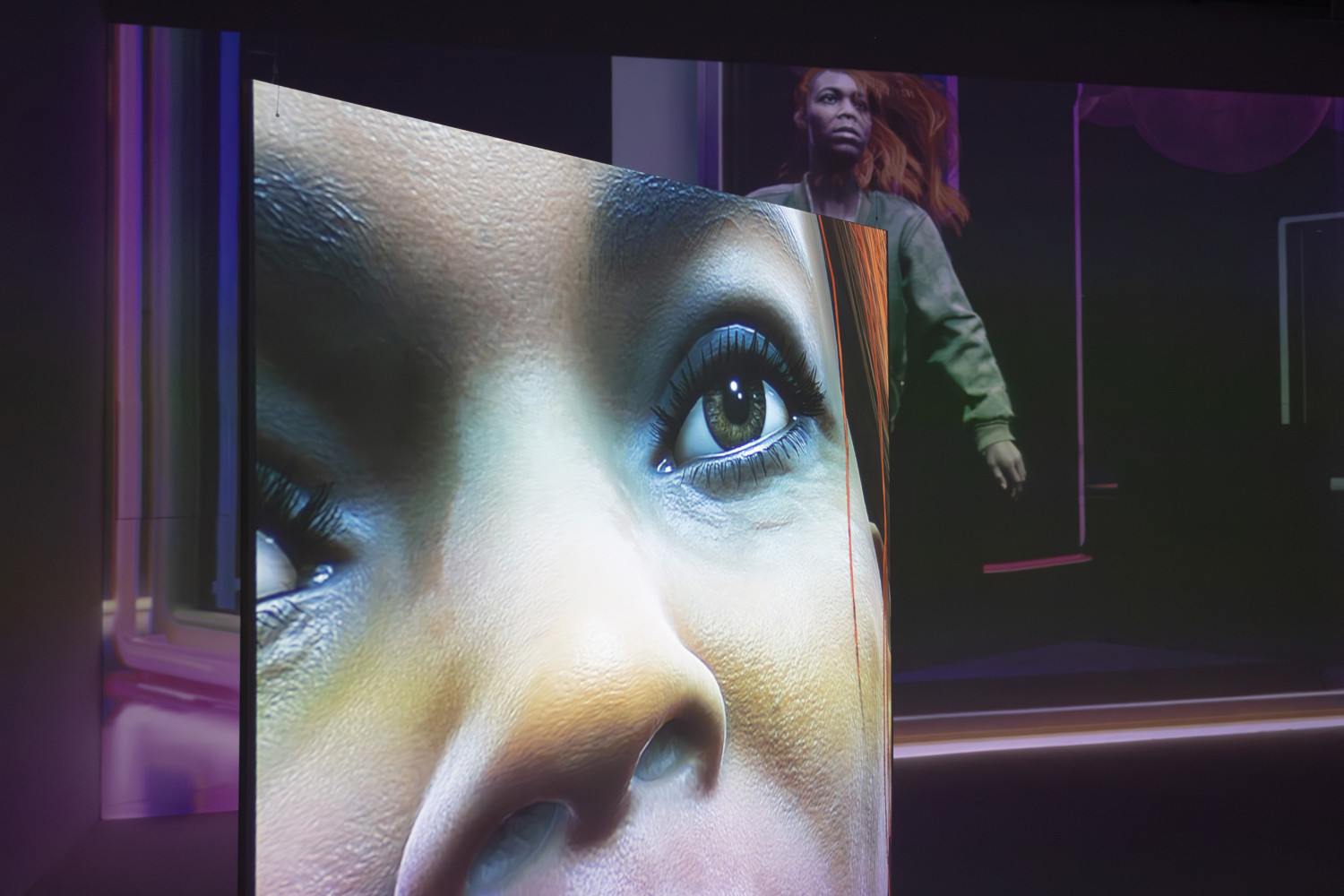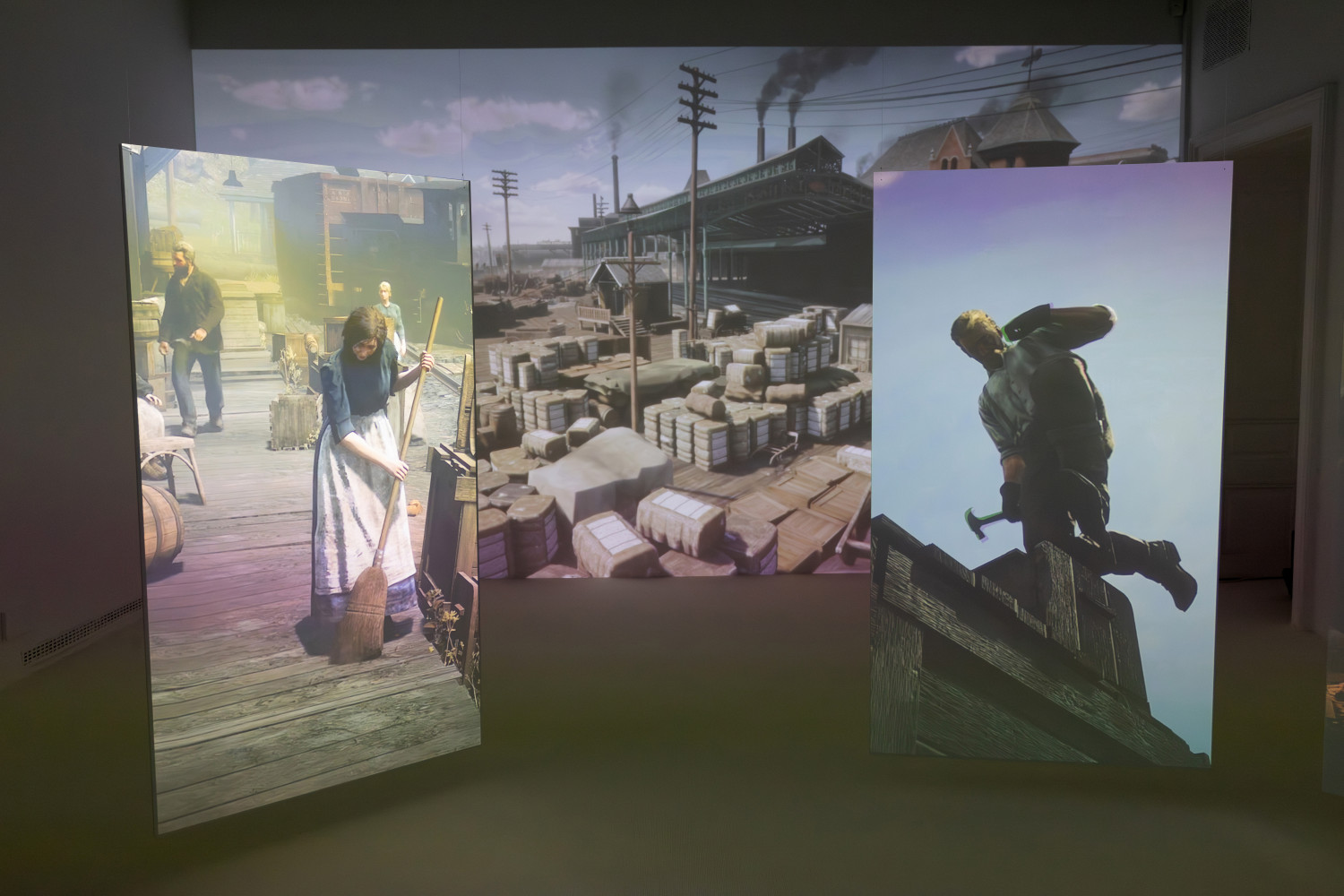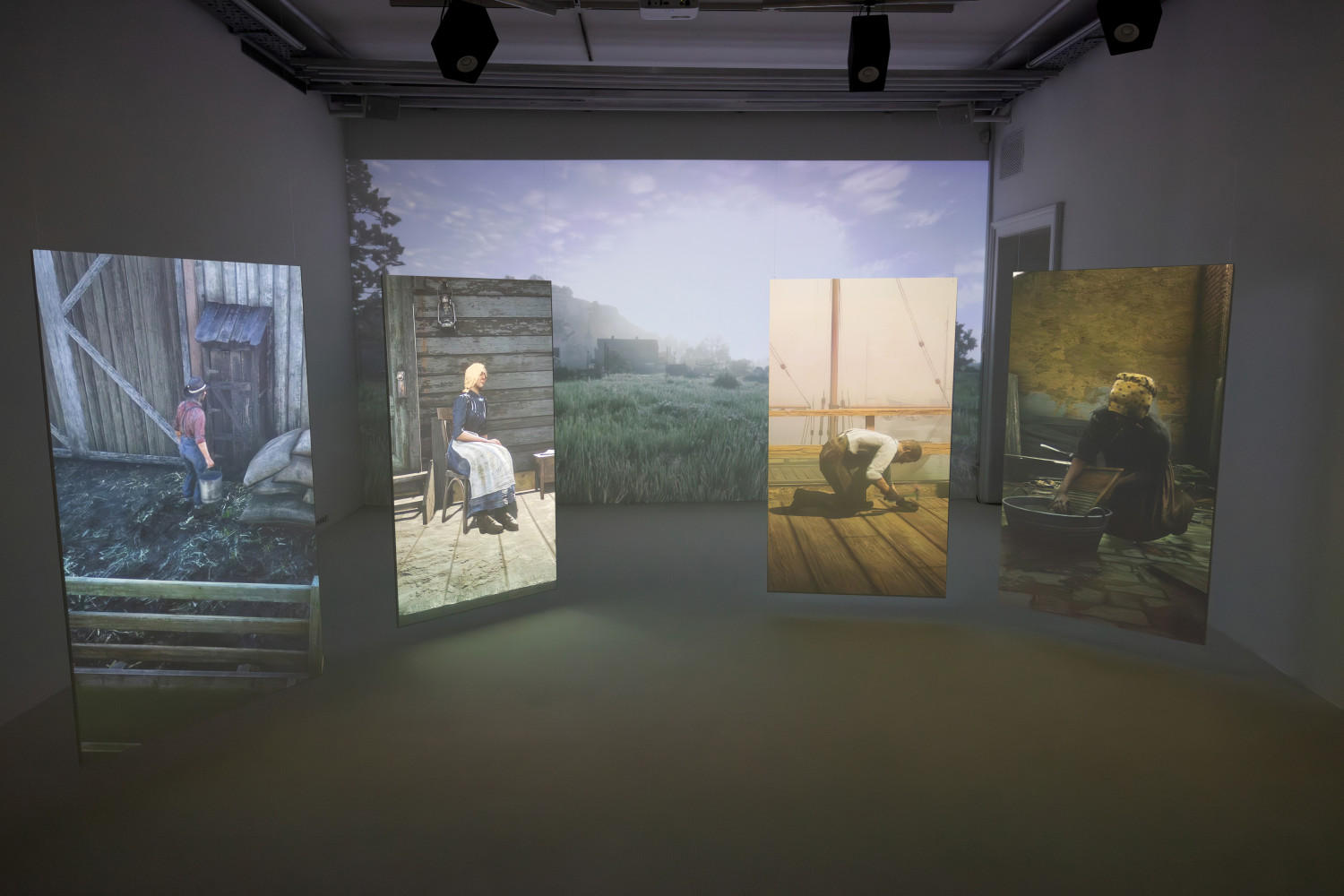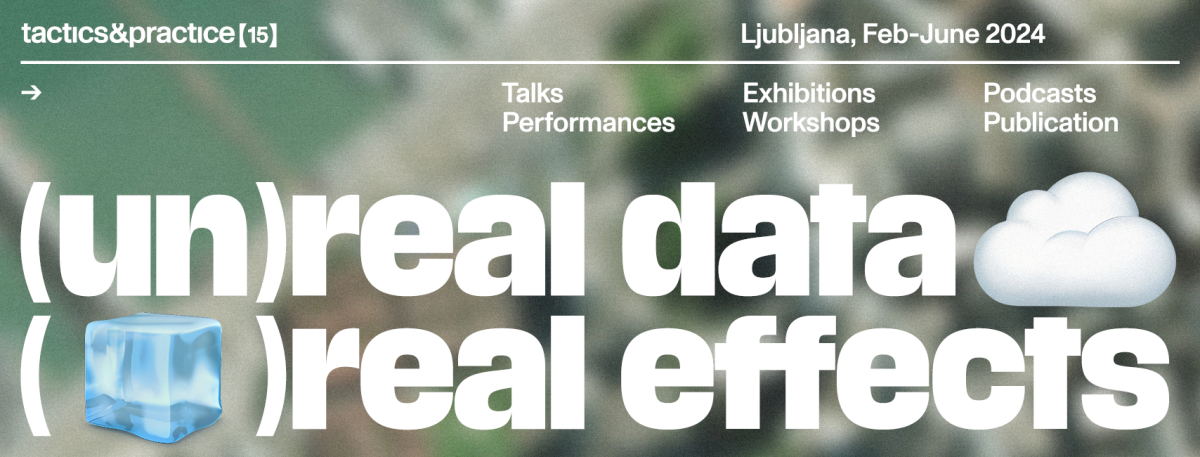
How is reality shaped by data? How can the act of purposely creating data provide agency within data-driven systems? Does this act open a space for action in a data-driven society where opting out is no longer an option? Where in such a society is the space for our intervention in the world?
For the 15th edition of Tactics&Practice, Aksioma’s discursive programme focusing on contemporary investigative art, society and new technologies, we curated (Un)real Data – Real Effects, a series of events, activities and critical reflections that explores how the ambiguous quality of data can be used as a tool to produce real-world outcomes. The programme takes place in Ljubljana, Slovenia, in the first half of 2024 in various venues and includes a kick-off conference, a series of exhibitions and performances, various workshops and artist talks, a new podcast series and the publication of a book with commissioned texts.
Curatorial Text
The transition towards a data-driven society requires that all the technologies we use essentially become part of a networked data-gathering infrastructure. Automated data collection has become an intrinsic component of most technologies which means that most of our interactions with technology today generate data. Data is captured, recorded, analysed, displayed and presented as reality. Our realities are thus becoming increasingly shaped by abstraction based on probabilities and patterns that are tailored to specific needs. The balance between “unfiltered” experience and experiences mediated by algorithmically processed data is shifting rapidly towards the latter. We shop online, guided by the product ratings of others. We are offered car insurance, home insurance and jobs only after being assessed by algorithms for risks based on previous data. Our news and social media feeds are tailored according to our previous likes and views. We are given access to jobs, to travel, to education based on personal data. In work settings, we are constantly monitored by devices and software: the use of workplace surveillance has exploded in recent years and bossware is assessing productivity by counting how many clicks, how many keystrokes we are making, what web pages we are surfing and how much we are contributing to chats and emails. Are we clicking fast enough? Look engaged enough in the video call? Are we interacting enough in the work chat? When productivity is rated by algorithms based on quantified data and not work results, how does that change the way we work?
Considering how data is generated in such systems, Wendy Chun concludes that a change of state is necessary, as things must be in motion in order to be recorded and become data. She goes on to say that “people who engage in heavily captured activity have a certain freedom, namely, free creation within a system of rules. They can optimise their actions, so that their effort is decreased or their recorded productivity is increased; they can become more rather than less skilful. In more cynical colloquial terms, users can game the system.” What is needed is an intervention in the “lively data” itself, as Deborah Lupton calls the constant generation of a mass of digital data that becomes part of everyday life.
Within this emerging setting, the programme (Un)real Data – Real Effects looks at how producing specific data can become a means to intervene into data-driven systems. The practice of “unreal-ing data” makes use of the ambiguous quality of data so that it does not describe the world with data but instead strategically produces the “right” data to provoke specific outcomes. (Un)real Data – Real Effects looks at how this ambiguity can become an opportunity to generate certain views on the world. Can we produce the data to appear productive to bossware, maybe even without actually working? Do we use automated mouse movers to appear productive and busy? How do we need to tailor our personal data to increase access to jobs? “Unreal-ing data” means to first understand the data-processing system we are interacting with and then to deliberately create, modify or interpret data not to conform to the world, but to transform it. Can we reframe the lack of representational quality of a data set as a feature and not a bug?
Conference:
(Un)real Data – Real Effects
27 February 2024 at Kino Šiška, Ljubljana
Photos: Miha Fras / Aksioma & Tina Stariha / Kino Šiška
Talks & Performances by
Gloria Gammer, Marta Peirano, Alexandre Puttick, Cornelia Sollfrank, Felix Stalder, Simon Weckert & and us
26 February–22 March 2024
Aksioma Project Space, Ljubljana
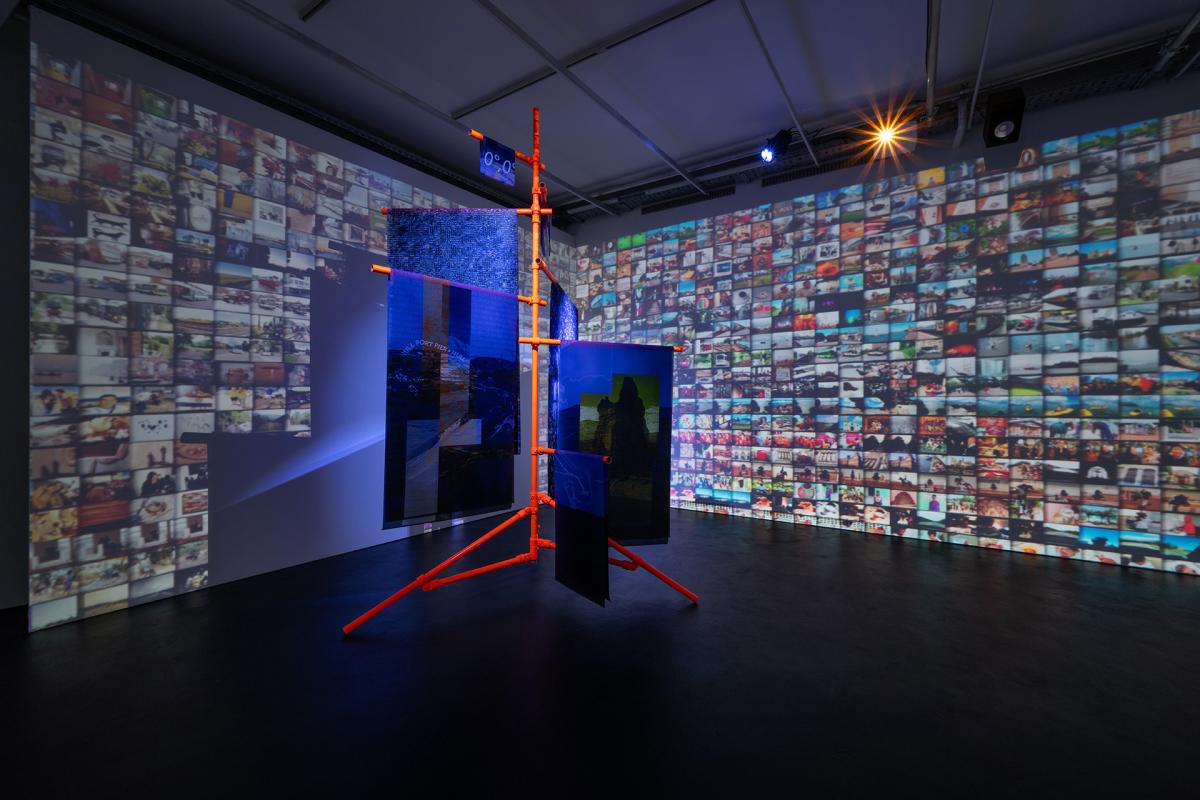
Data that cannot be assigned to its correct geographic location is processed with the geographic values of 0, 0 and automatically assigned to 0° N, 0° E. Such errors arise, for example, when the geoposition of an uploaded image cannot be identified. The image is then assigned a latitude and longitude of “0, 0” by default.
Therefore, in data space, geographical zero is an ever-growing collection of faulty data from sites like Flickr, Airbnb or Strava, from smartwatches and mapping services. With The Republic of Null Island, Simon Weckert gives the virtual data space a physical manifestation. The installation not only brings null data into view but also geo-spoofs visitors to The Republic of Null, where they can browse the accumulated data and add their own, which is automatically assigned the coordinates of Null Island. Simon Weckert uses The Republic of Null Island to imagine physical voids and show how they connect to the realities created by the data that manifests there.
Watch Simon Weckert's artist talk The Map Becomes the Territory – Street 3.0 at the Academy of Fine Arts and Design (University of Ljubljana) on YouTube: https://www.youtube.com/watch?v=PjPoWRaRHII
3–26 April 2024, Aksioma Project Space, Ljubljana
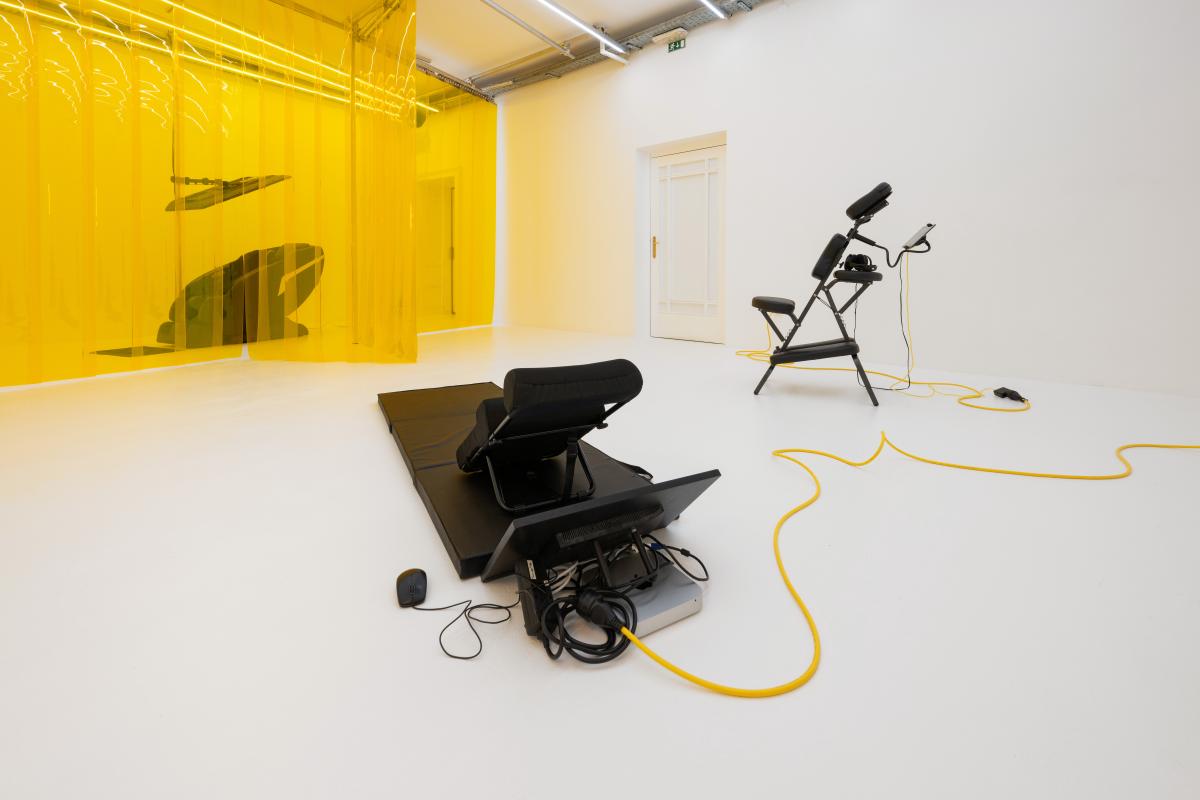
With One Star Review Tour, Selena Savić, Gordan Savičić and !Mediengruppe Bitnik look at how rating systems shape the perception and experience of a place.
The exhibition at Aksioma explores what it means when places we love are scrutinised and publicly rated: it investigates the politics of rating systems and engages with the power of reviews to produce real effects.
Find all the details about the work here: https://www.bitnik.org/1-star-review-tour
Node #3
Total Refusal: BPM
15 May–14 June 2024, Aksioma Project Space, Ljubljana
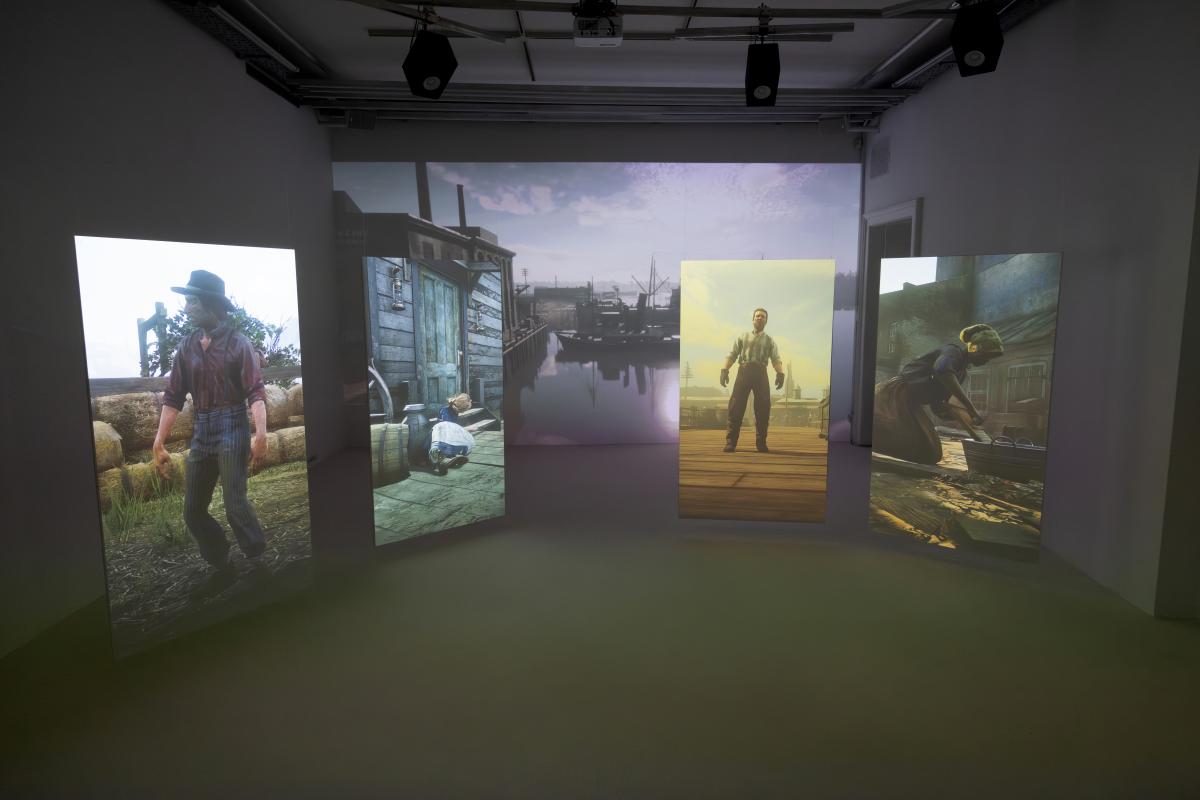
Digital machines work with striking rigour. Inexhaustible like metronomes, their existence is bound to precise rhythms and loops from which they cannot possibly escape. They never question their role in the process of value generation, they don’t unionise, they don’t strike. At the same time, the bug is an immanent feature of their existence. They regularly malfunction and resist to work as intended. What critical potential lies in the crippled struggle of algorithmic entities? Is the glitch a role model for resistance and labour strikes in the time of gamified digital capitalism?
Examining these questions, BPM critically negotiates the concepts of “work” and, as its counterpart, “leisure” on the example of non-player characters (NPCs) in video games. Video game spaces are examined with a humorous approach for their subversive potential, setting the stage for an updated critique of capitalism that focuses on human and non-human working conditions. The two multi-channel video installations, the ethnographical essay Hardly Working and the disco installation Club Stahlbad, both question the rhythmicality and loop-ness of life under capitalism. While the former focuses on the Sisyphus-like working life and the characters’ possible escape from it, the latter discusses the area of leisure as both a counterpart and an extension of the clocked work regime.
